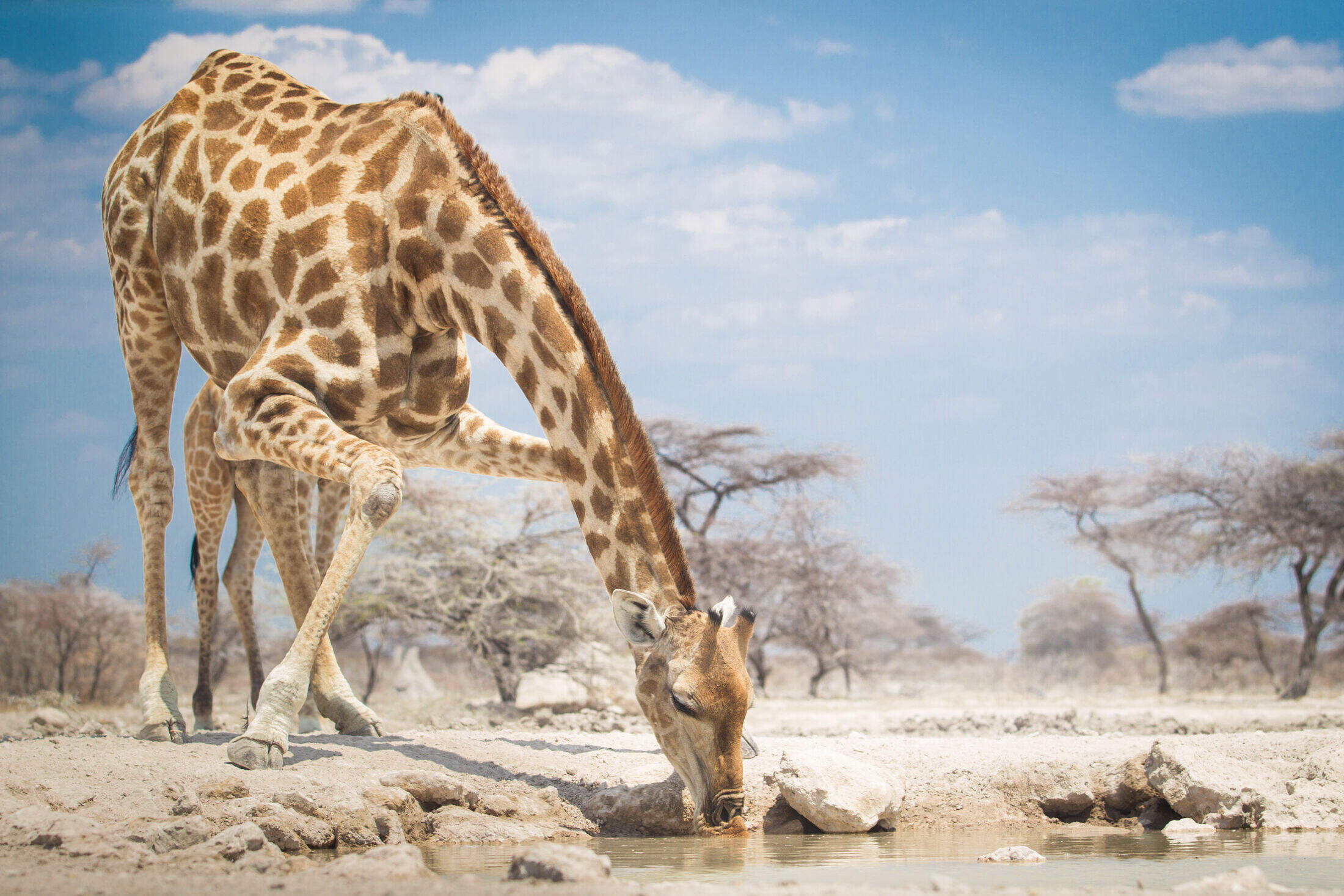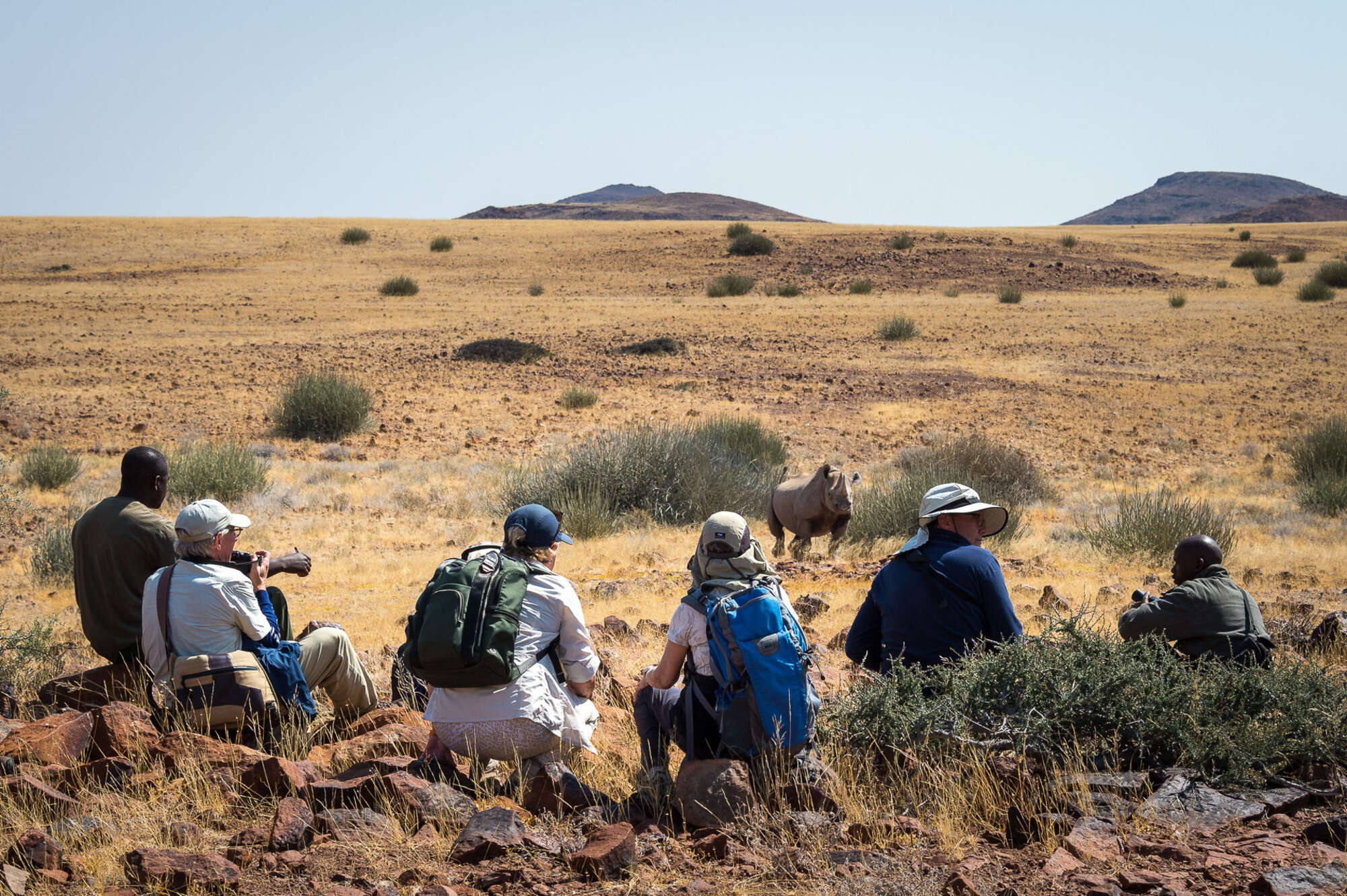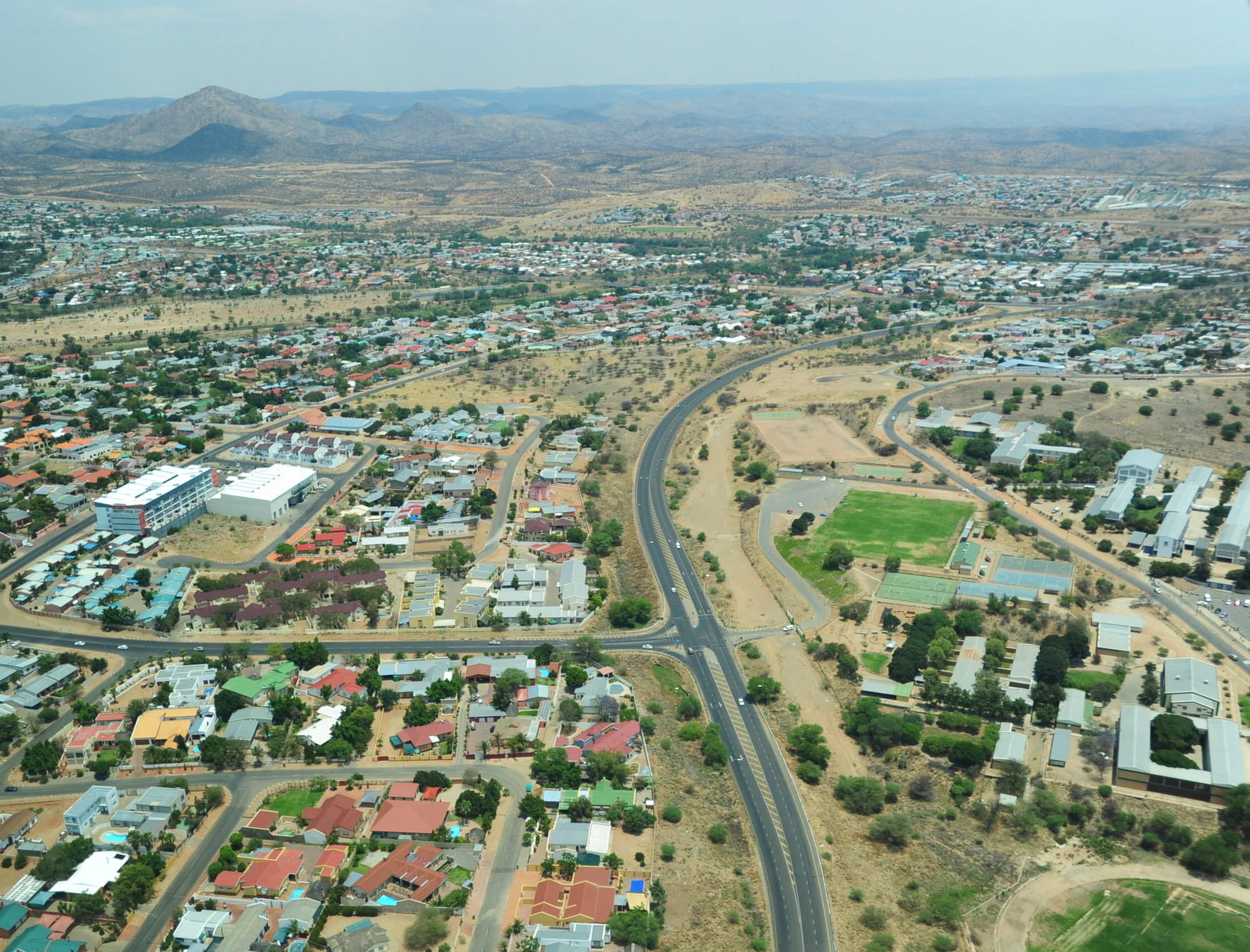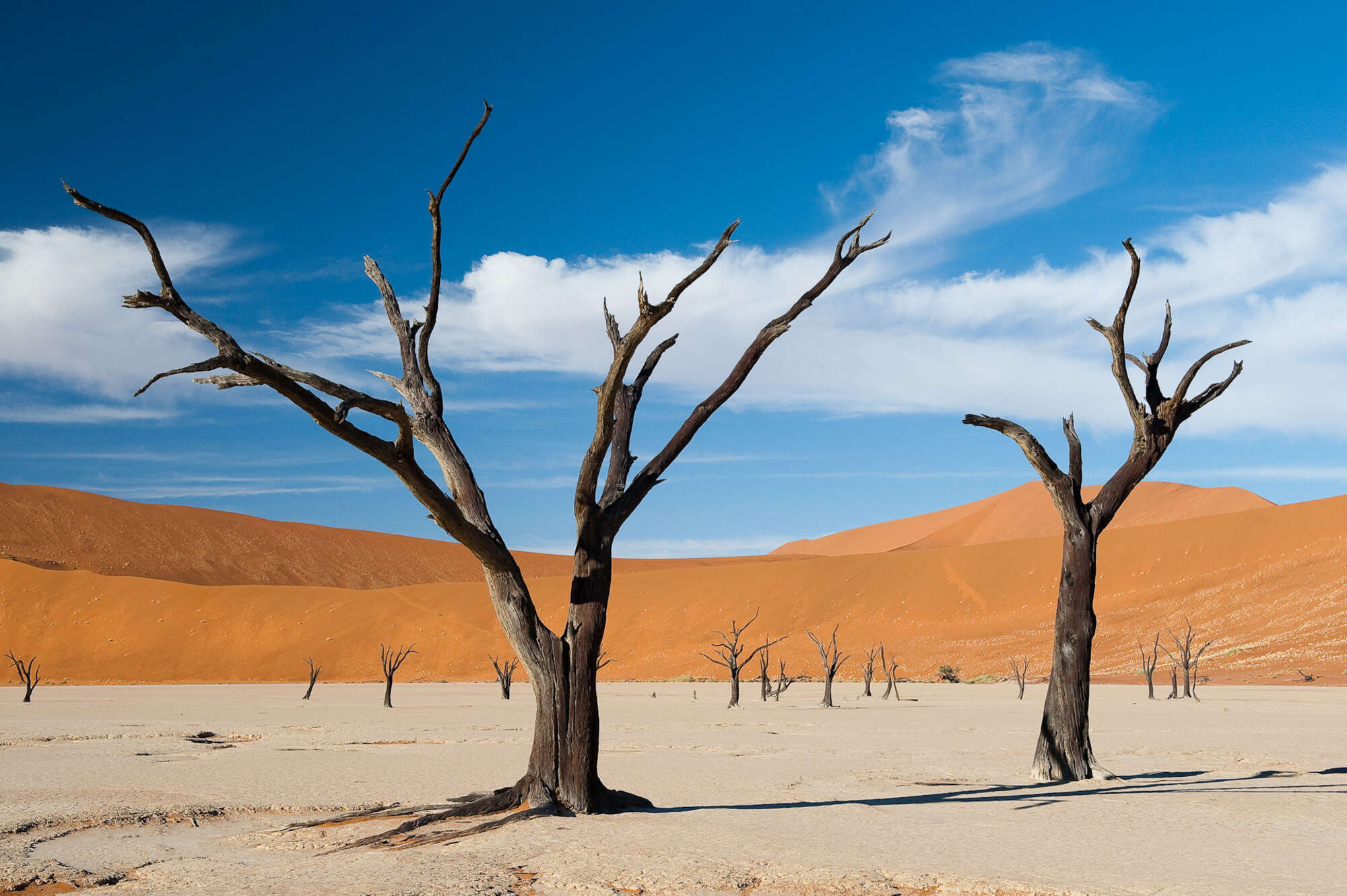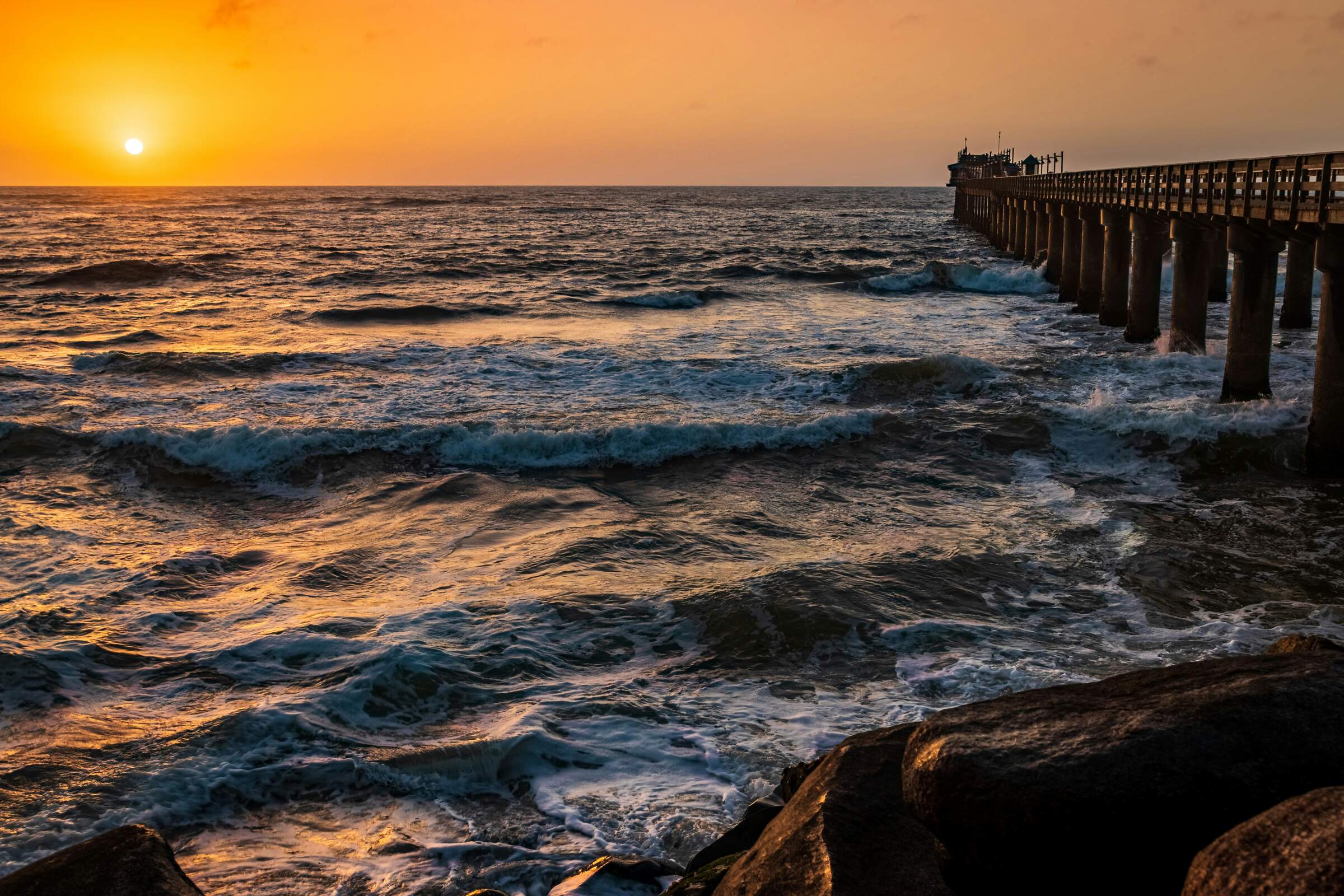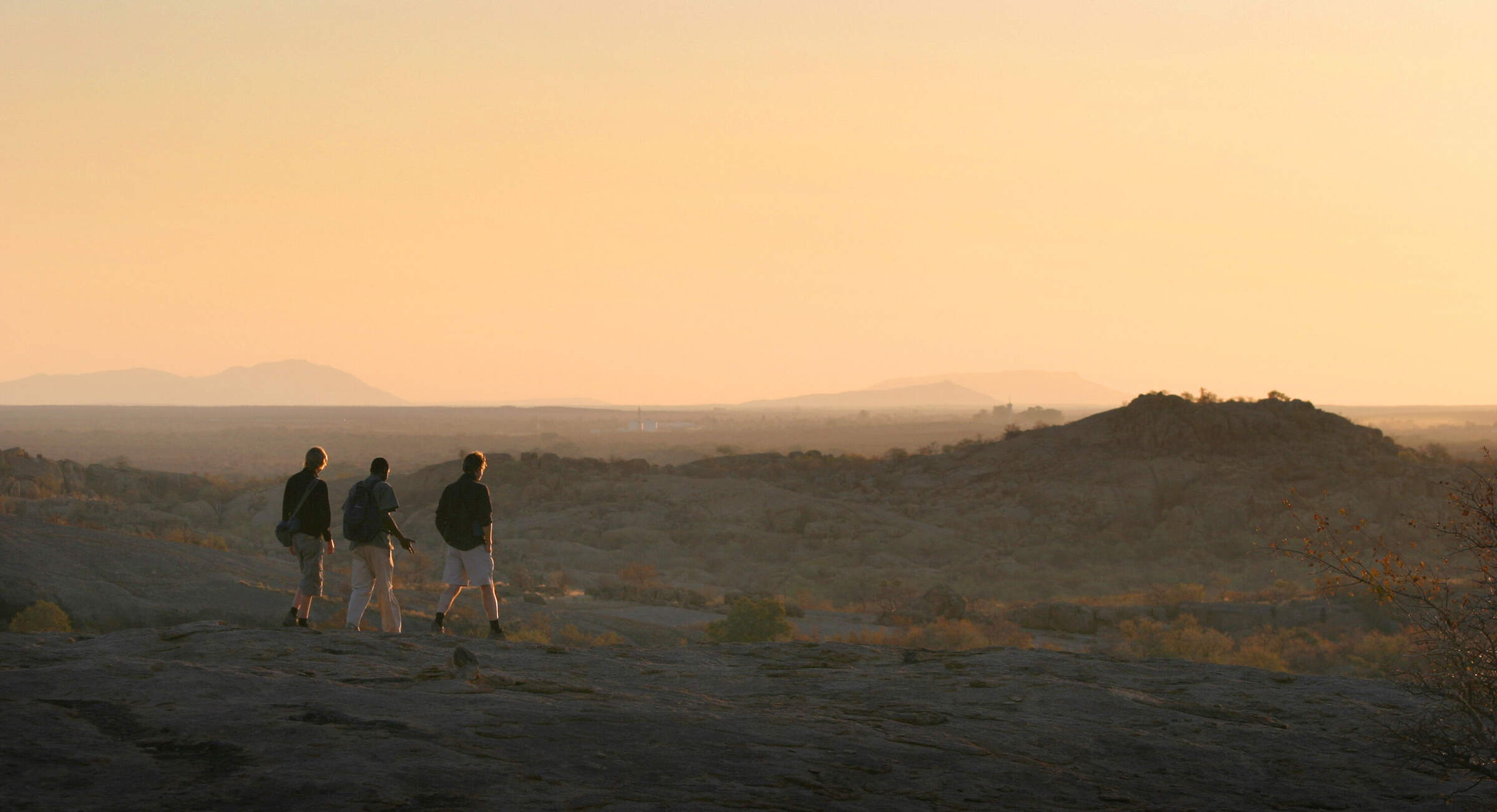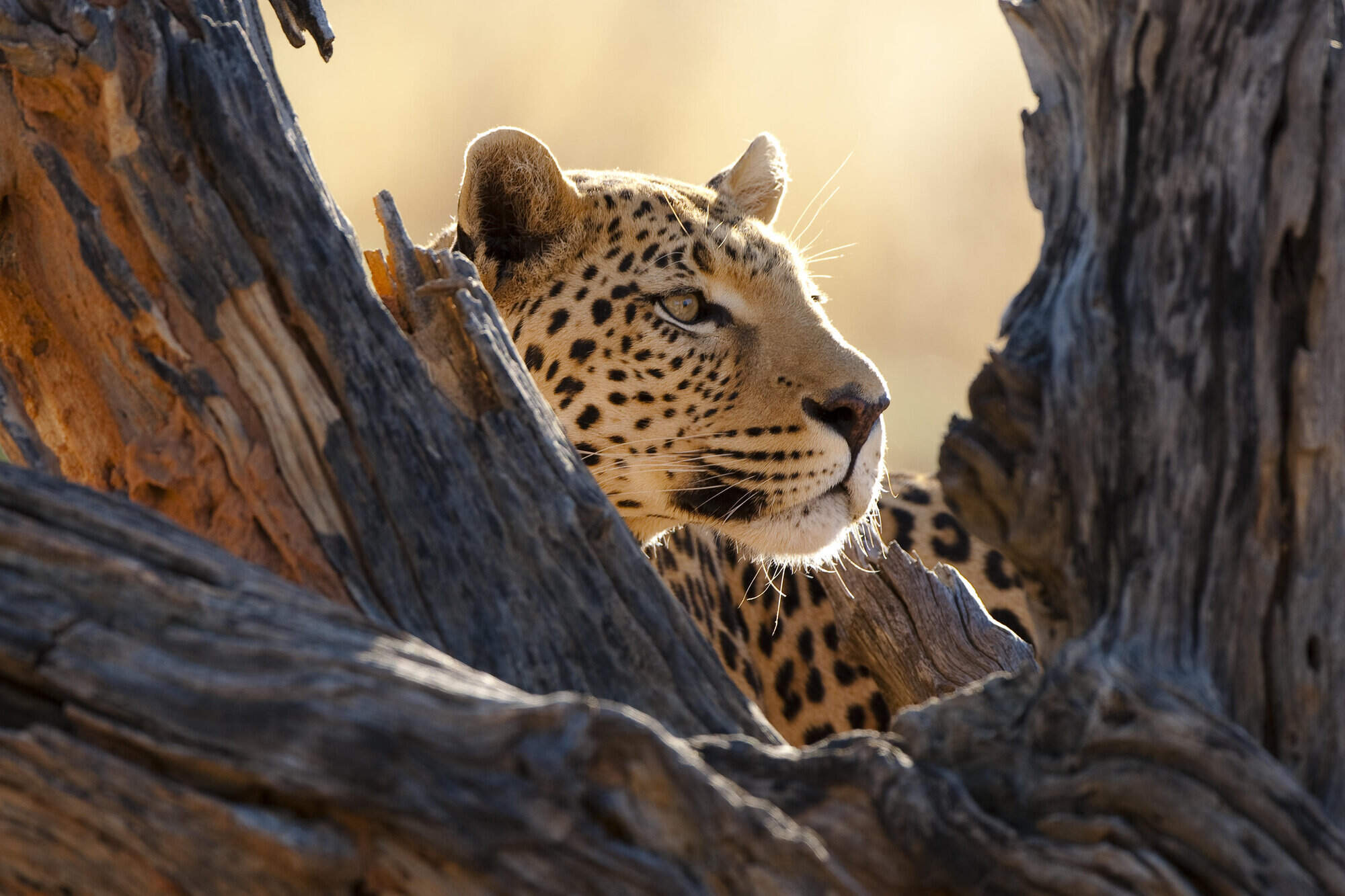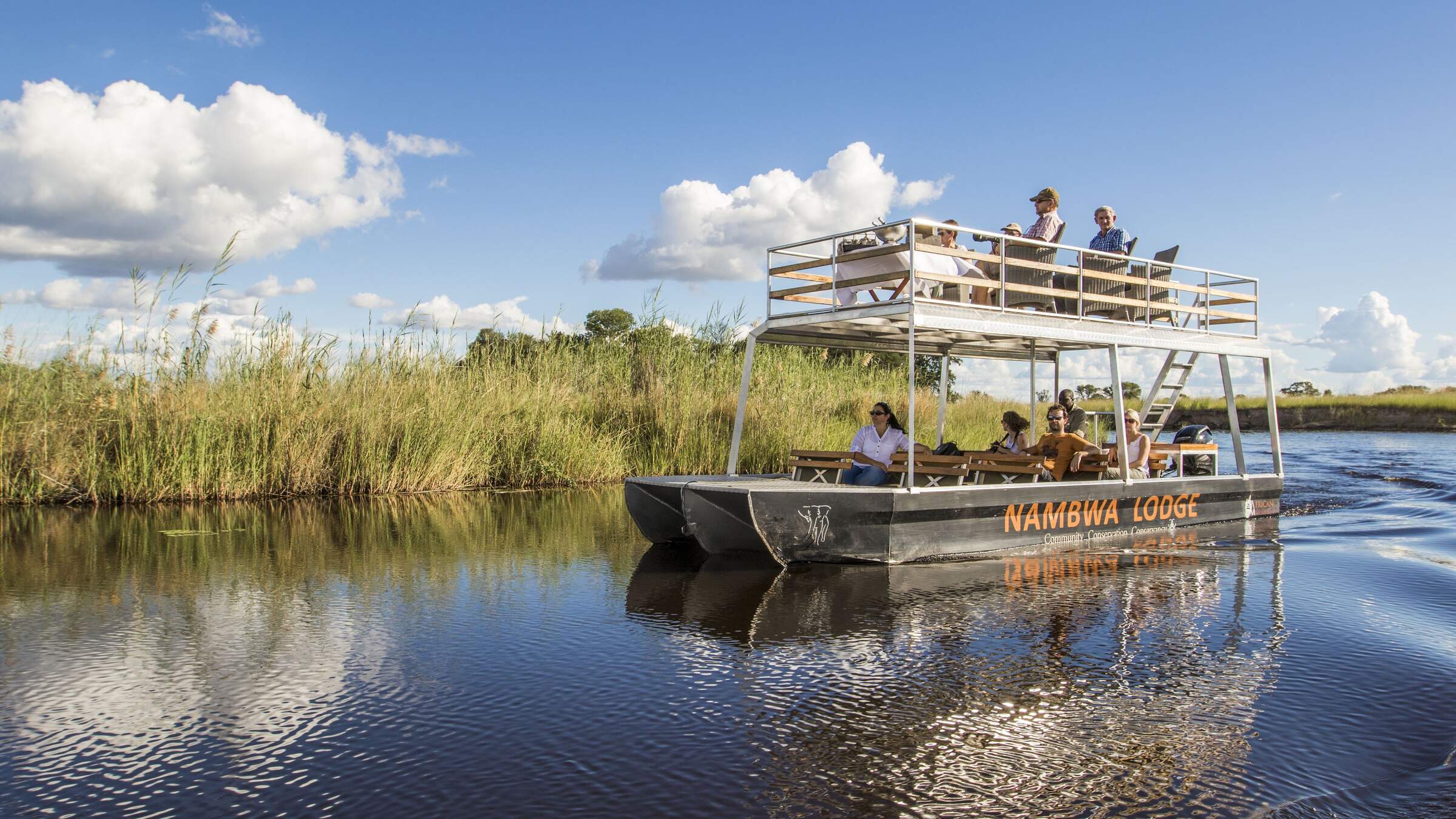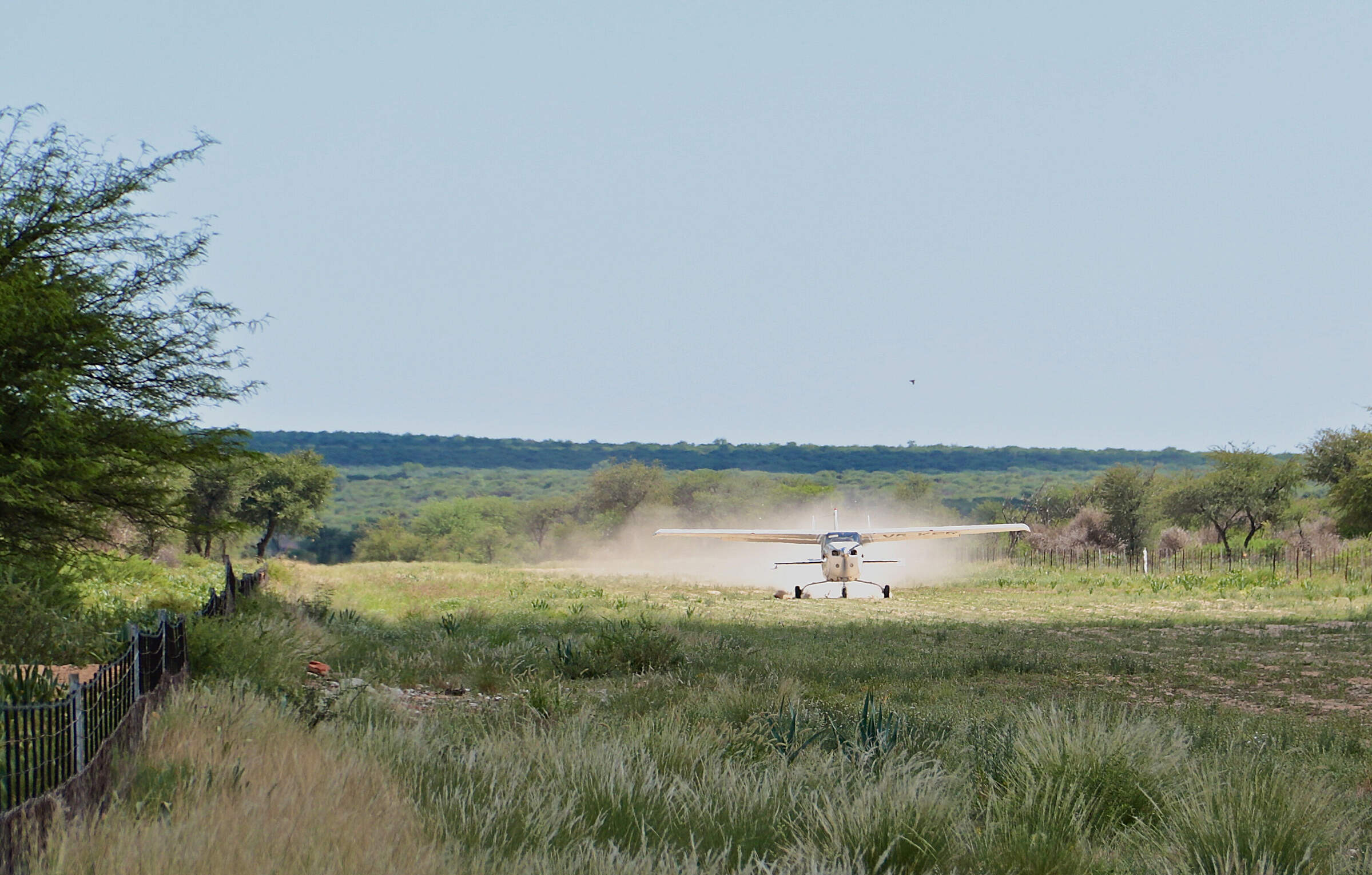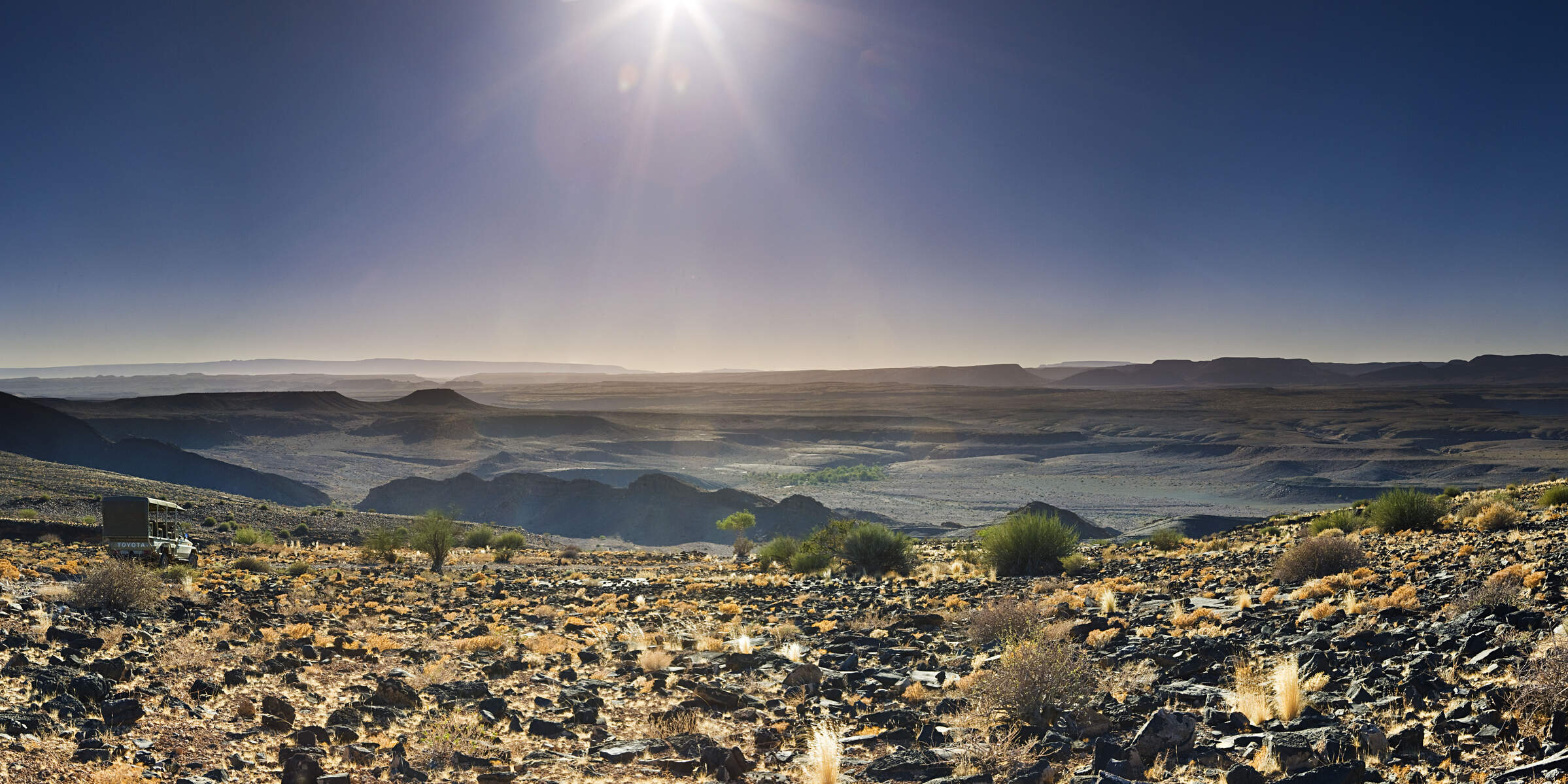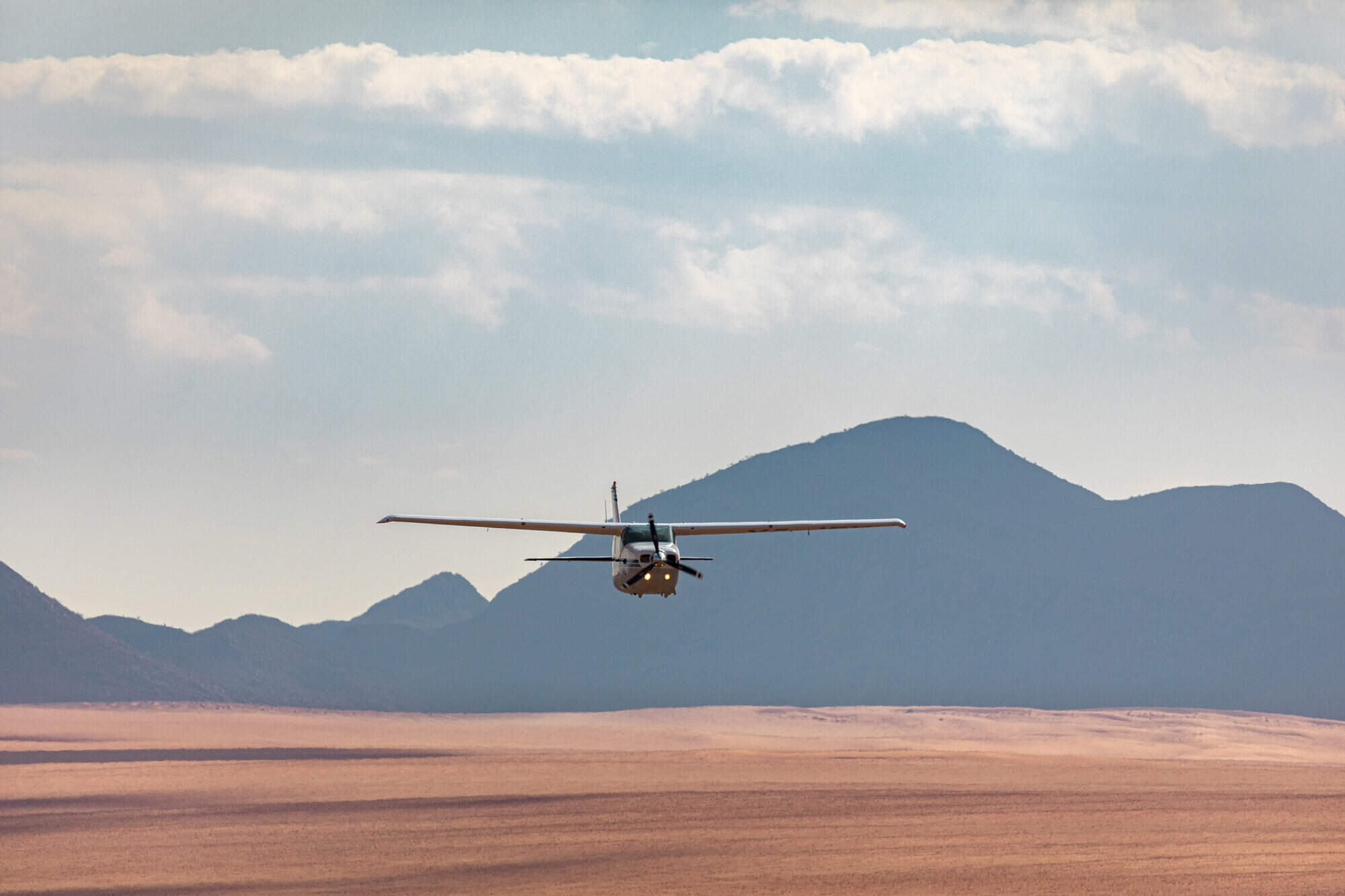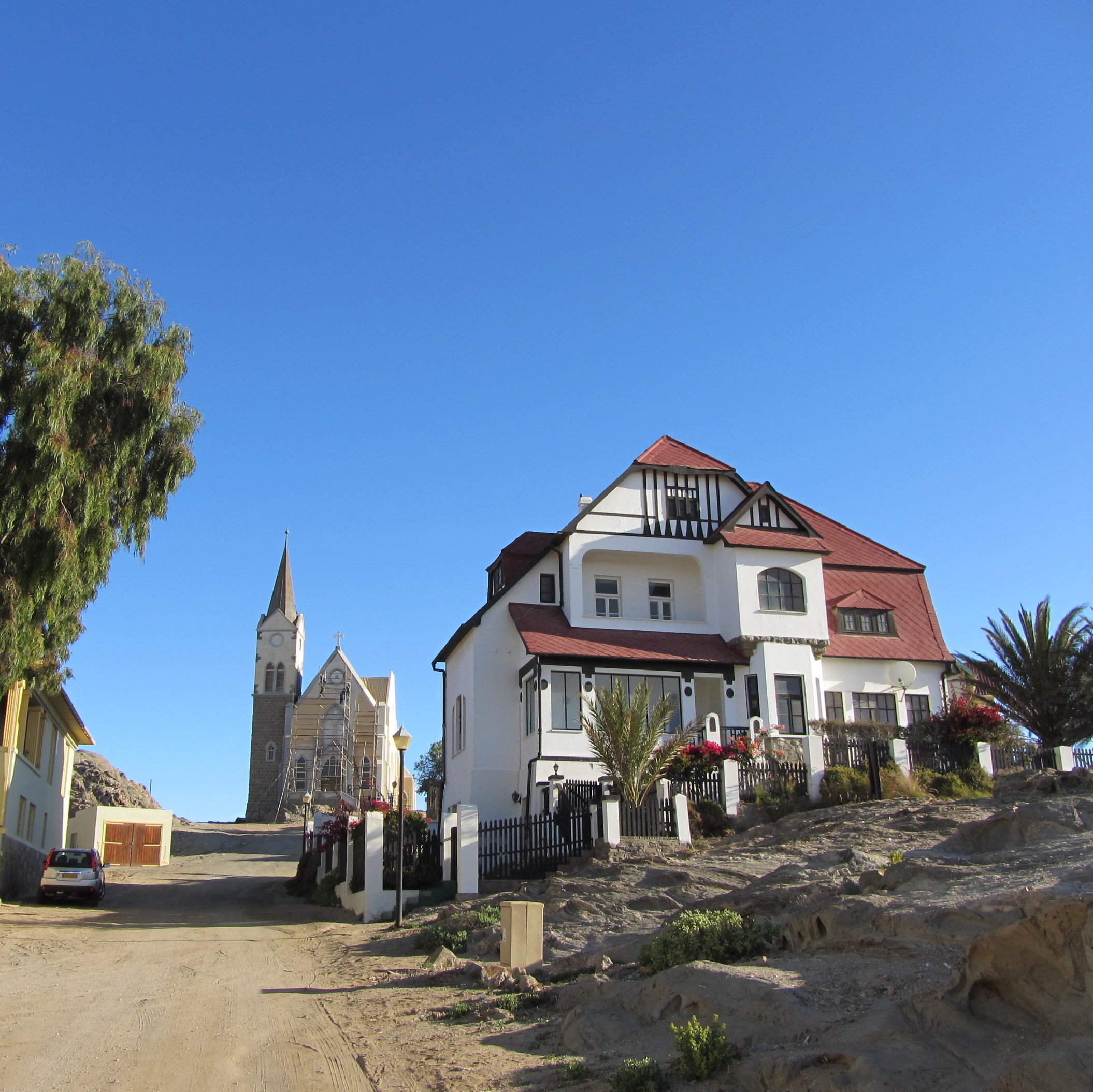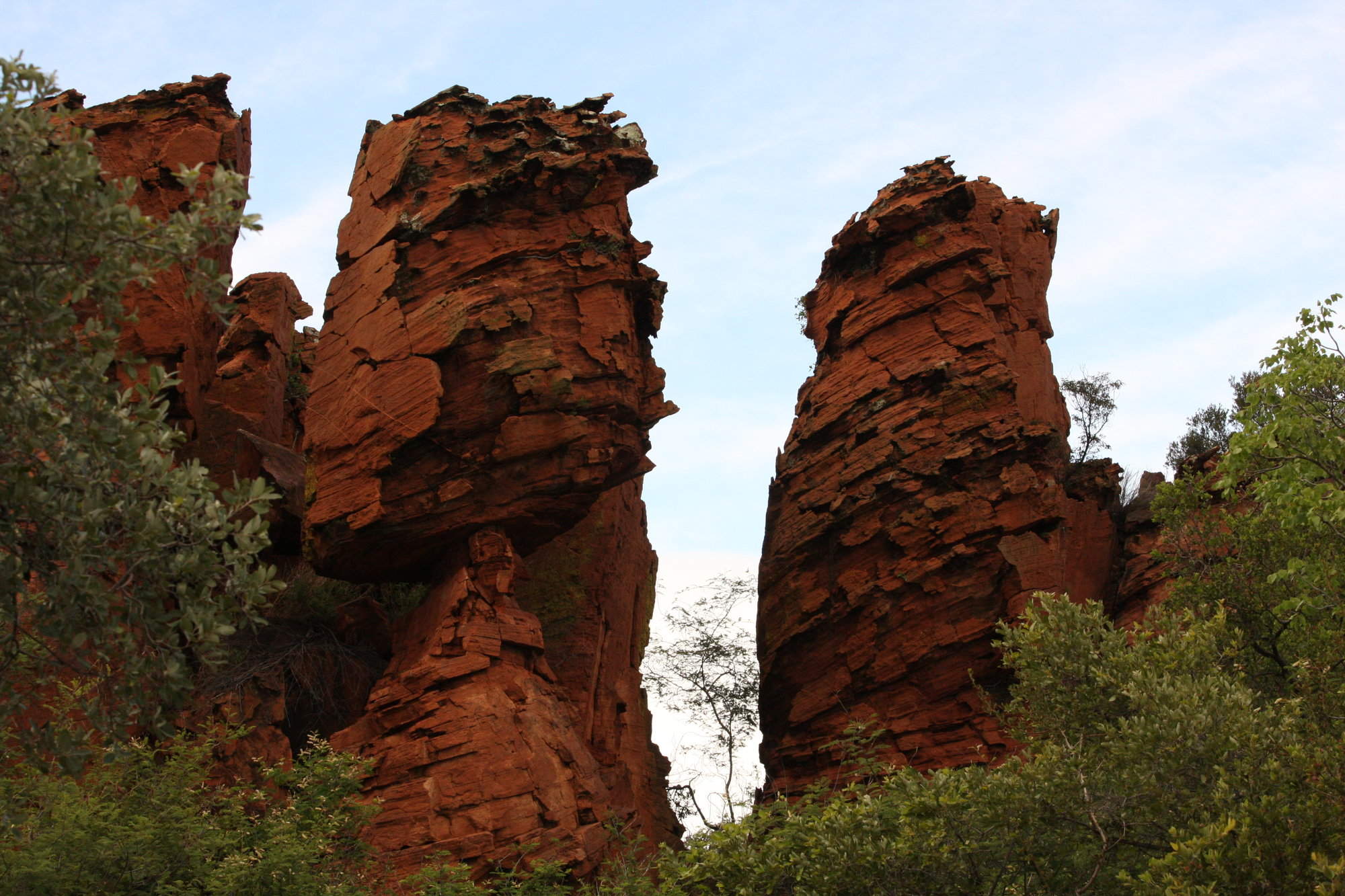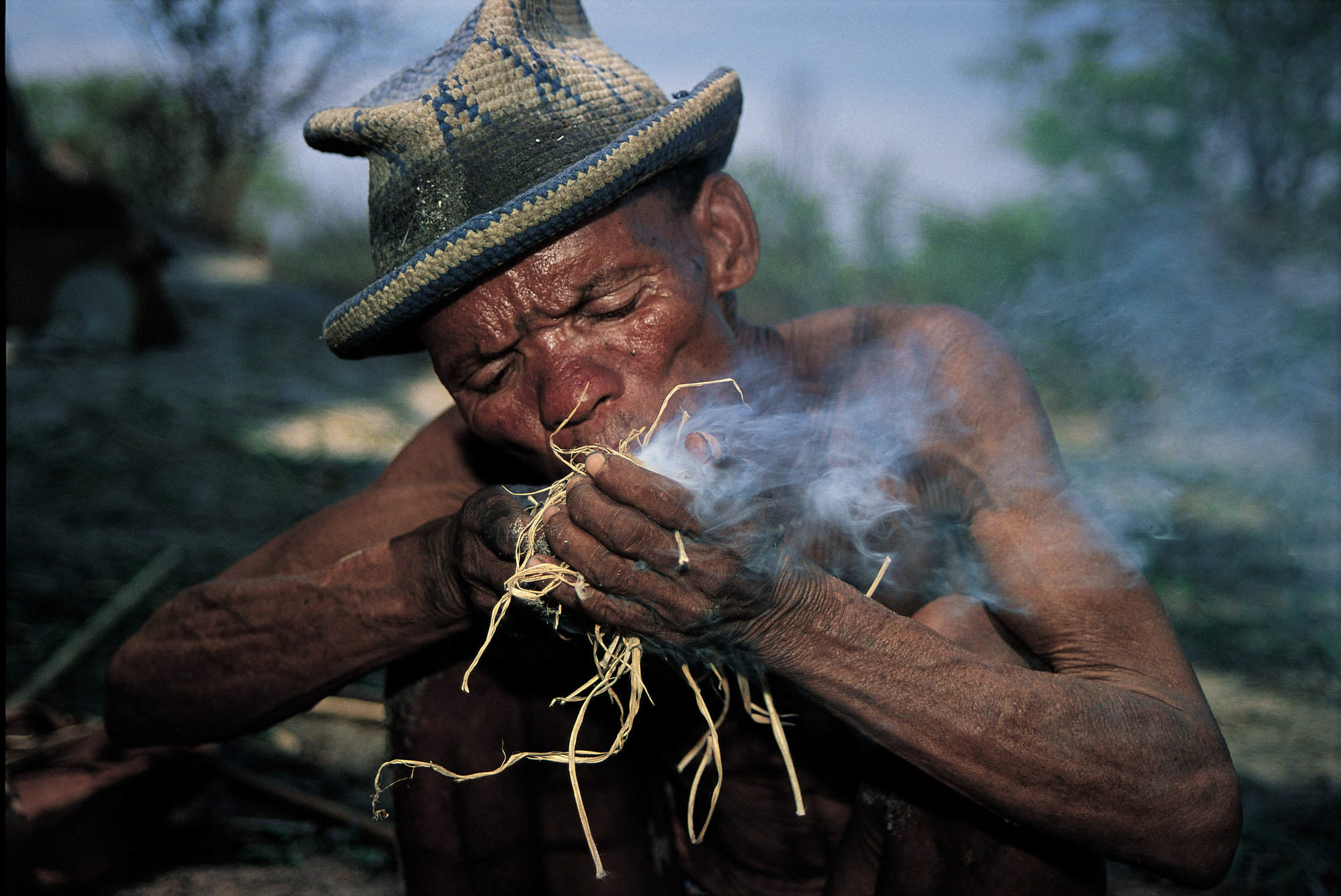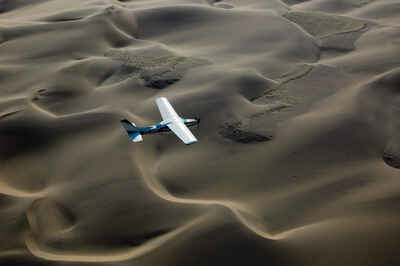
fly into the very remote areas of the region.
these semi-nomadic people have retained many of their traditions.
opportunity to meet the local Himba people.
nature drives into otherwise inaccessible places.
Rock formations near the Ugab river.
guided activities give you great insight into the area.
Skeleton Coast & Kaokoland
Skeleton Coast & Kaokoland
Where desolate white sands meet the dark waters of the Atlantic: the Skeleton Coast is starkly, hauntingly beautiful.
Yet while scenically compelling, it’s a harsh, unforgiving wilderness where both humans and wildlife eke out a living at the very margins of existence.
Inland from the coast, the Himba continue their traditional, semi-nomadic lifestyle, their skin and hair covered in a red-ochre butter that affords both protection from the sun – and an extraordinary beauty.
For elephants, as for humans, lack of water is the major stumbling block to life in this often hostile environment. Key to their survival are ephemeral rivers, such as the Hoanib and Hoarusib, lined with nutritious plants, their residual pools providing much-needed pockets of fresh water.
Heading west, the rivers flow into sand, choking the trees that reach down for water. As the vegetation runs out, so the dunes start, or expanses of gravel, the relentless glare from the overhead sun suddenly thrown into soft focus by an encroaching mist.
And then comes the ocean. Seals bobbing up and down in the cold surf making it easy to smile. But don’t be fooled, for these are treacherous waters – witness the vestiges of shipwrecks rusting in the shallows. Huge whale bones marooned on the beach are matched by the sea-smoothed branches of dead trees.
By day, the occasional lone jackal, loping across the beach in search of an unfortunate seal pup, accentuates the eeriness. As night falls, a brown hyena may loom out of the gathering gloom. Even here, life goes on.
While the southern part of this coastline is accessible to self-drivers, the north remains off limits. To get here, to the heart of the Skeleton Coast, you need to fly in to one of the handful of specialist camps whose in-depth knowledge of this exceptional area is a must.
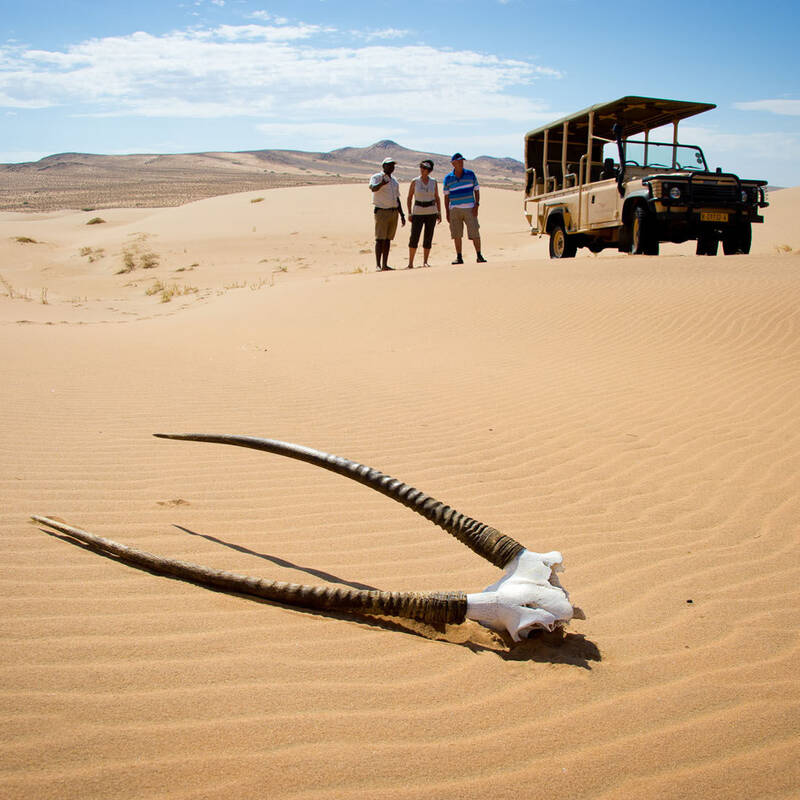
Safaris visiting Skeleton Coast
Just ideas, we'll always tailor-make a trip for you
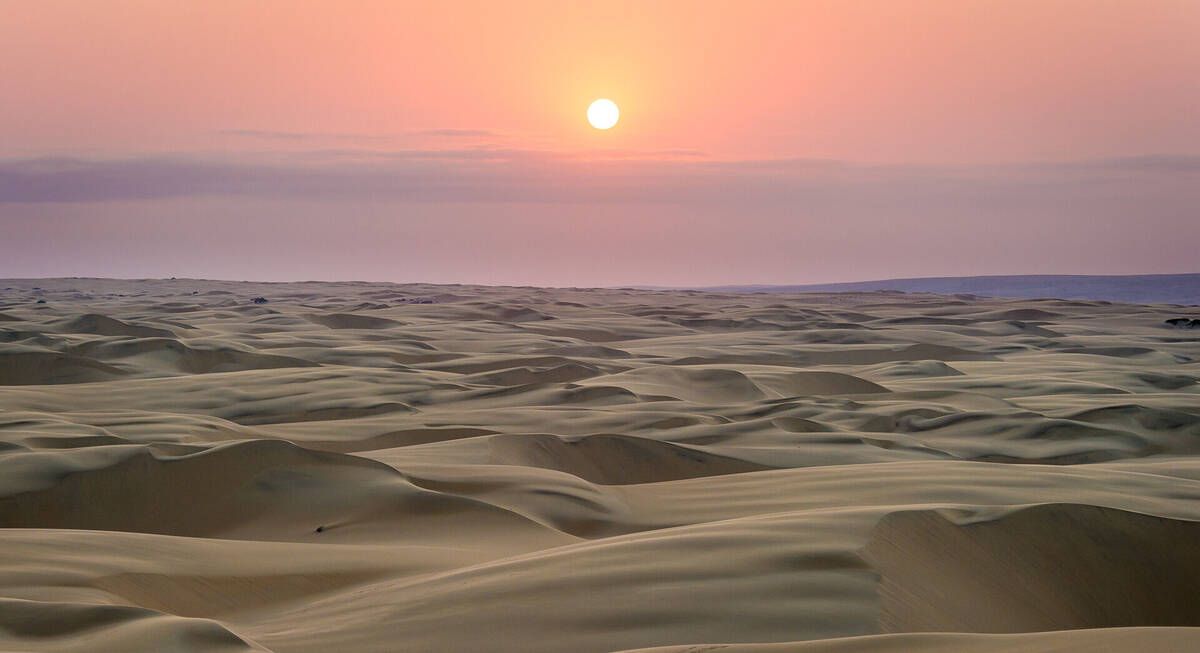
Ruppell's Korhaan Fly-in Safari
9 days • 4 locations
WINDHOEK AIRPORT TO WINDHOEK AIRPORT
Explore Namibia’s remotest wildernesses while staying at some of the most exclusive luxury camps in the country. This epic fly-in safari will deliver otherworldly landscapes, fascinating wildlife and genuine cultural experiences.
US$11,400 - US$16,900 per person
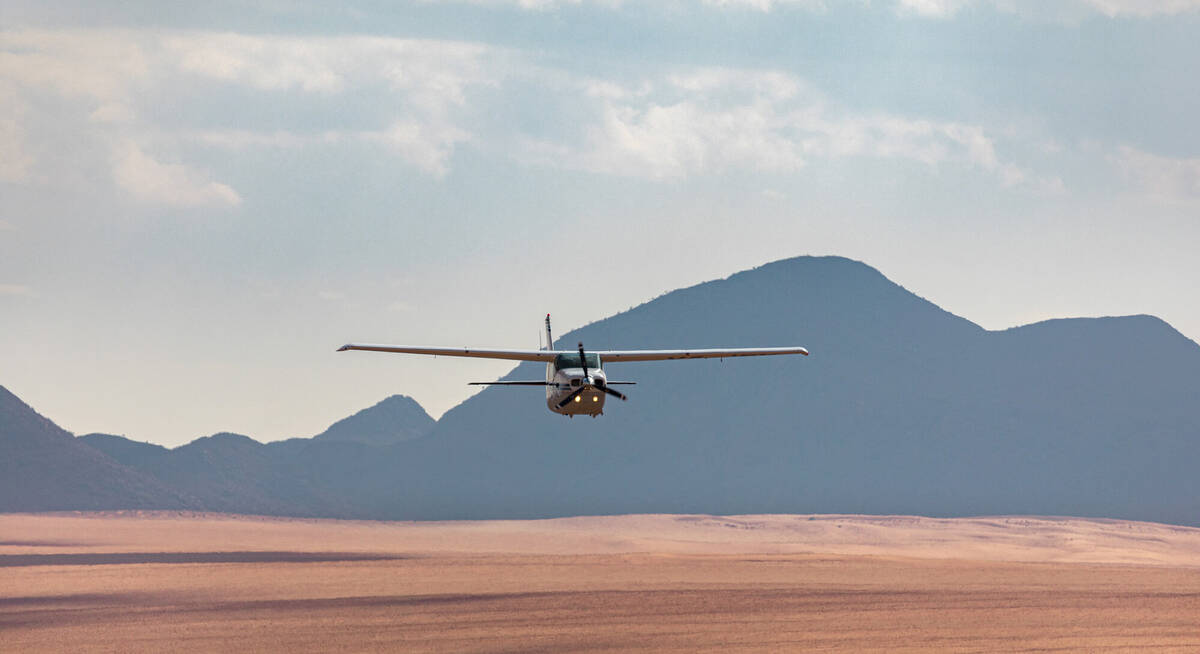
Monteiro's Hornbill Fly-in Safari
9 days • 5 locations
WINDHOEK AIRPORT TO WINDHOEK AIRPORT
Stay in four of Namibia’s most famous environments on this fly-in safari. It would be hard to pack more variety into a trip of the same length.
US$12,160 - US$14,700 per person
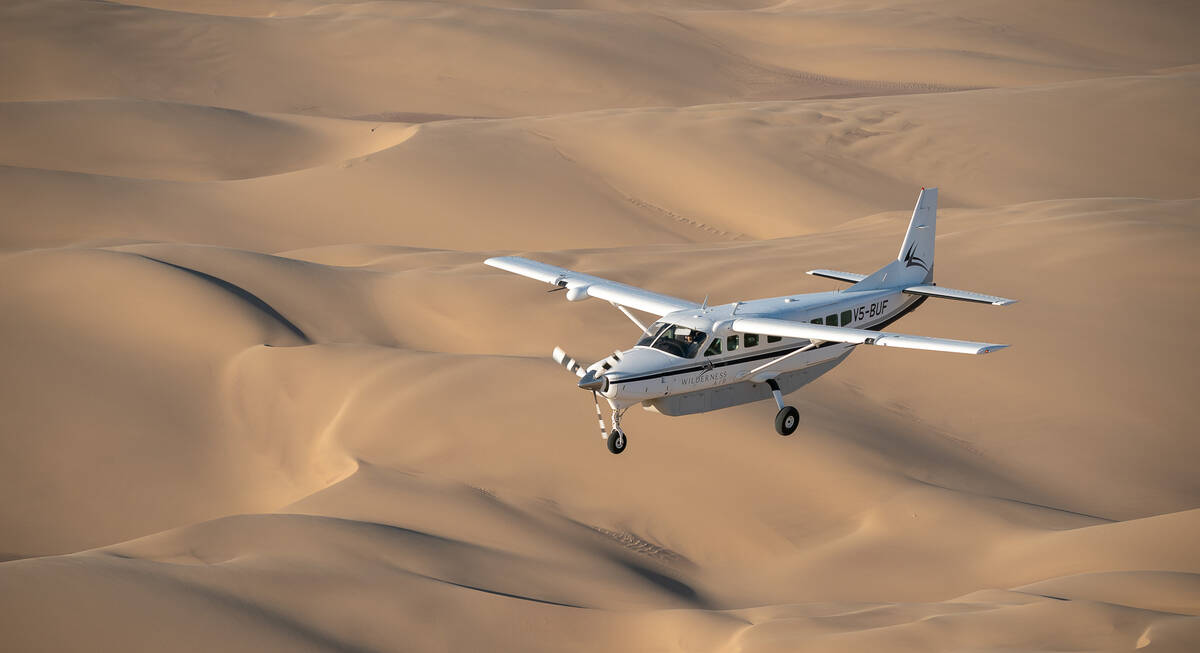
Goshawk Fly-in Safari
12 days • 6 locations
WINDHOEK AIRPORT TO WINDHOEK AIRPORT
Discover Namibia’s remarkable landscapes, fascinating wildlife and unique cultures on this luxury adventure flying between a selection of the very best camps and lodges in the country.
US$13,570 - US$20,340 per person
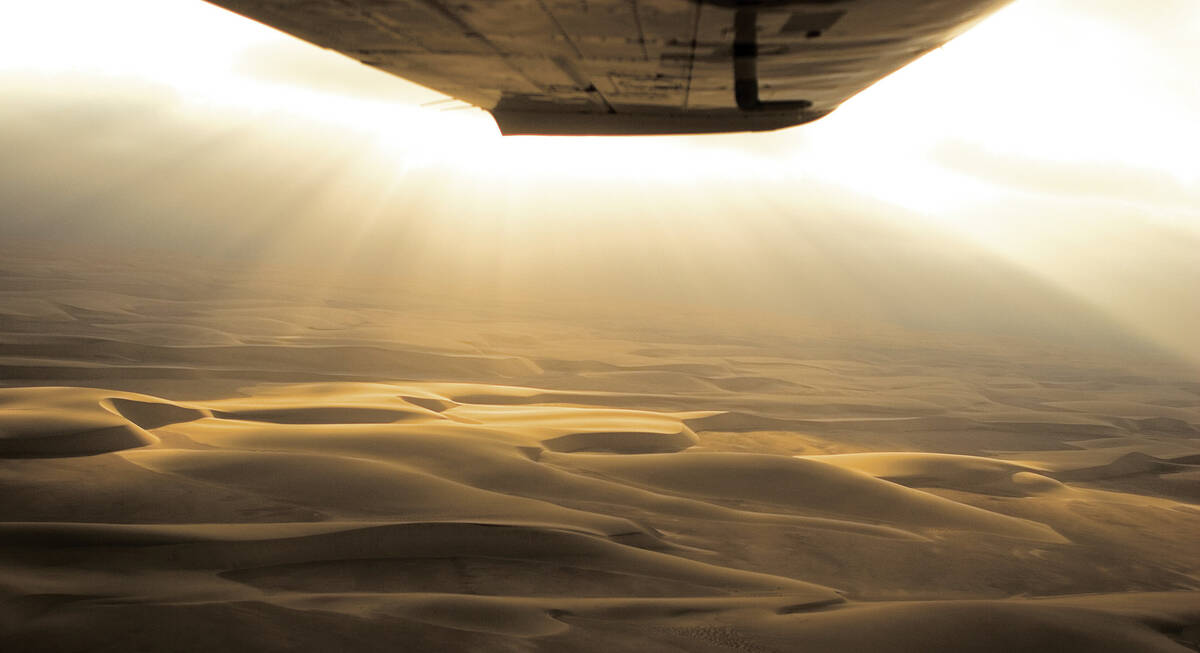
Skeleton Coast Safari
5 days • 5 locations
WINDHOEK AIRPORT TO WINDHOEK AIRPORT
An epic flying safari exploring some of Namibia’s most spectacular and remote wildernesses. Exceptional pilots, among the best guides in the country and exclusive camps – this a real bucket-list adventure.
US$10,990 - US$14,490 per person
Most recent reviews of our safaris to Skeleton Coast
Click below to browse all 209 reviews from Skeleton Coast & Kaokoland. All from our travellers; all are in full & unedited.
Arrived 3 Apr 2025, 17 nights
"My Apr 2025 trip"
Overall rating: Excellent
Arrived 24 Jan 2025, 10 nights
"My Jan 2025 trip"
Overall rating: Excellent
Arrived 14 Sep 2024, 12 nights
"My Sep 2024 trip"
Overall rating: Excellent
Arrived 17 Aug 2024, 16 nights
"My Namibia August 2024 trip"
Overall rating: Excellent
Arrived 11 Aug 2024, 23 nights
"My Aug 2024 trip"
Overall rating: Excellent
Arrived 21 Jul 2024, 25 nights
"My Jul 2024 trip"
Overall rating: Excellent
Arrived 4 Jul 2024, 16 nights
"Our Namibia trip"
Overall rating: Excellent
Arrived 5 May 2024, 14 nights
"My May 2024 trip"
Overall rating: Excellent
Arrived 16 Apr 2024, 22 nights
"My Apr 2024 trip"
Overall rating: Excellent
Arrived 12 Apr 2024, 8 nights
"Our April 2024 trip to Namibia"
Overall rating: Excellent
Where to stay in Skeleton Coast
Our suggestions for safari camps in Skeleton Coast & Kaokoland
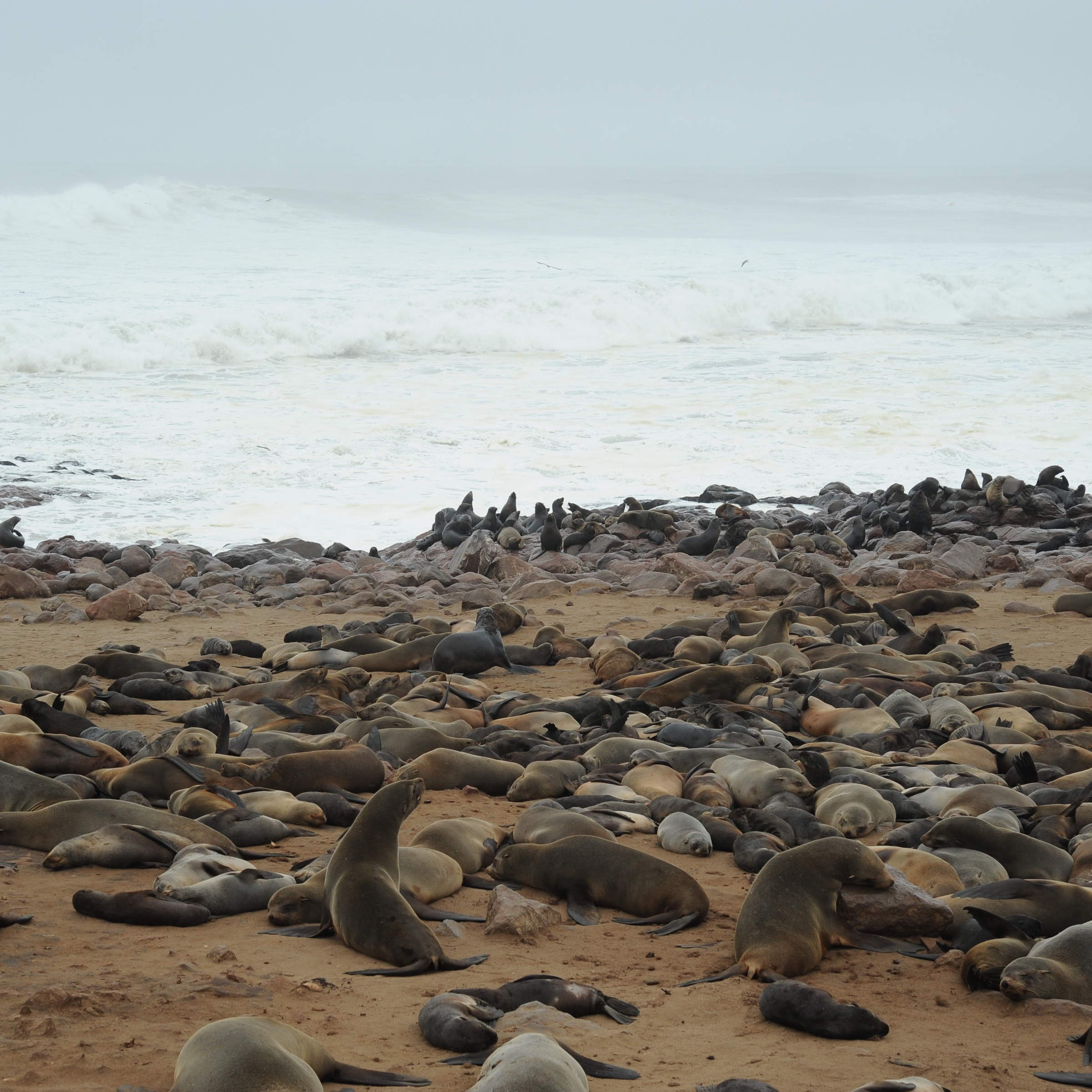
Cape Cross Lodge
Right on the Skeleton Coast, between Swakopmund and Damaraland, Cape Cross Lodge has easy access to Cape Cross Seal Reserve.
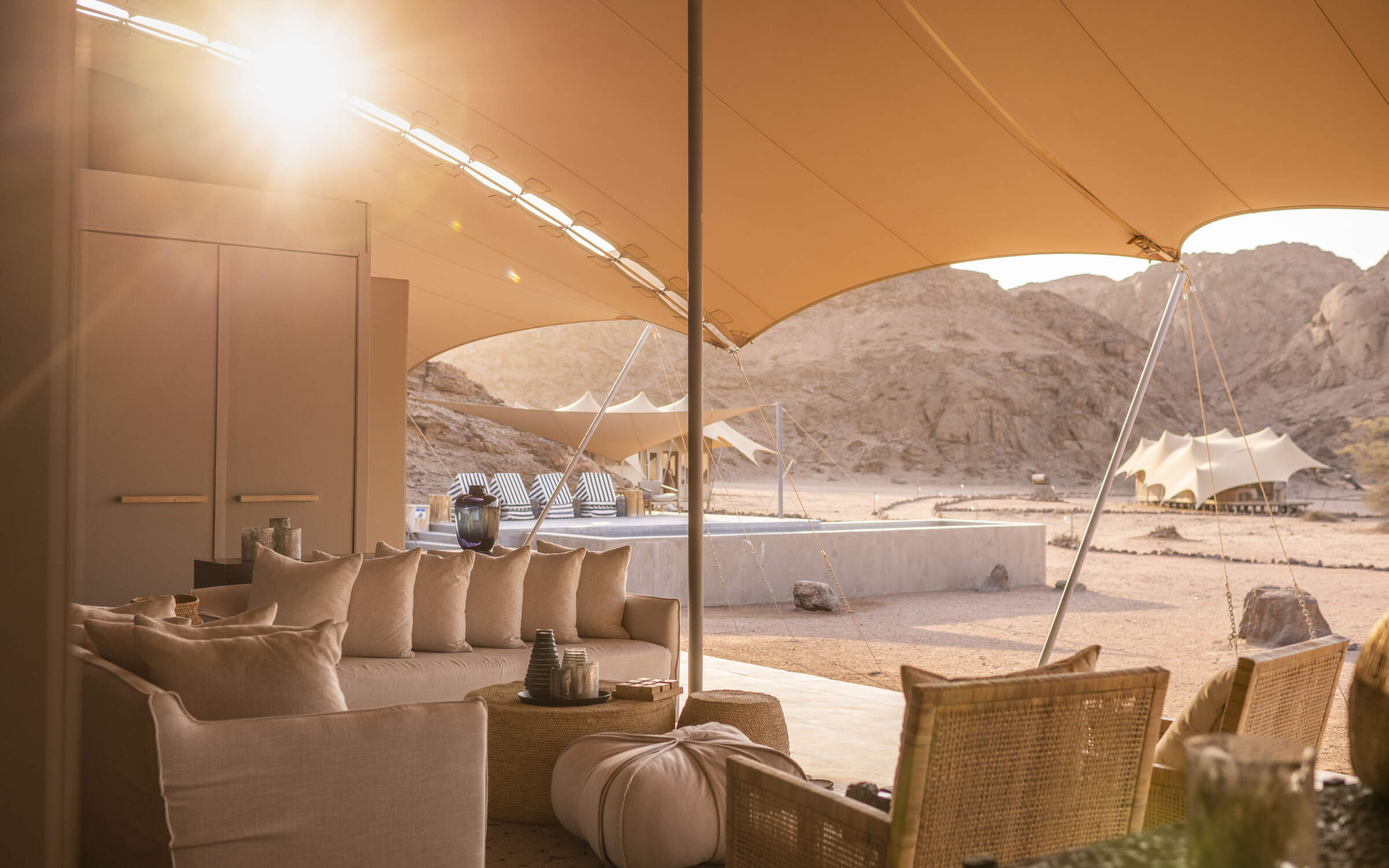
Hoanib Skeleton Camp
Hoanib Skeleton Coast Camp is actually situated 42km inland in Kaokoland, this said they offer a superb guided day trip to the coast.
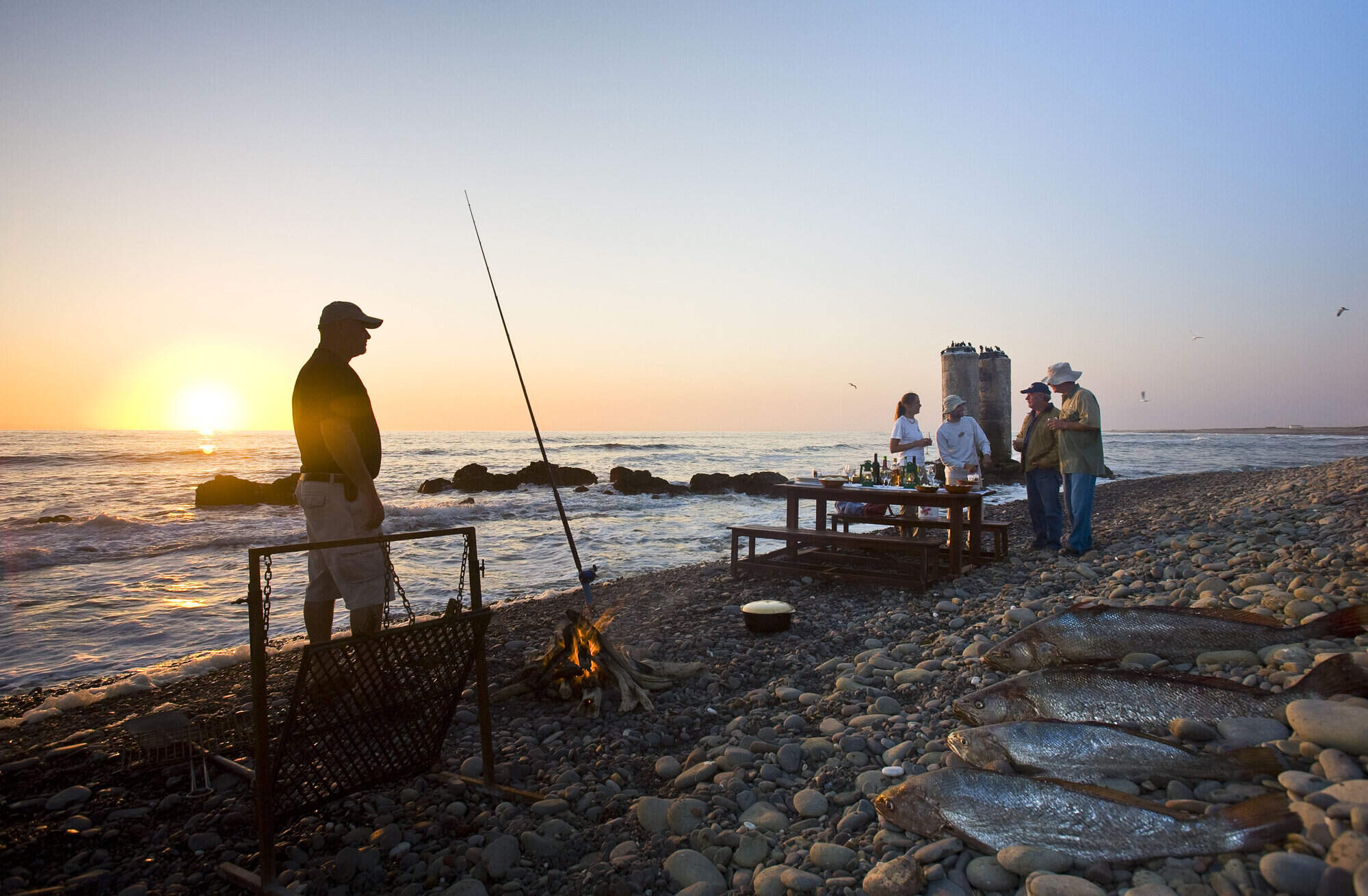
Terrace Bay
Terrace Bay is bleak. However, those that stay here come to experience the remote and inhospitable nature of the Skeleton Coast.
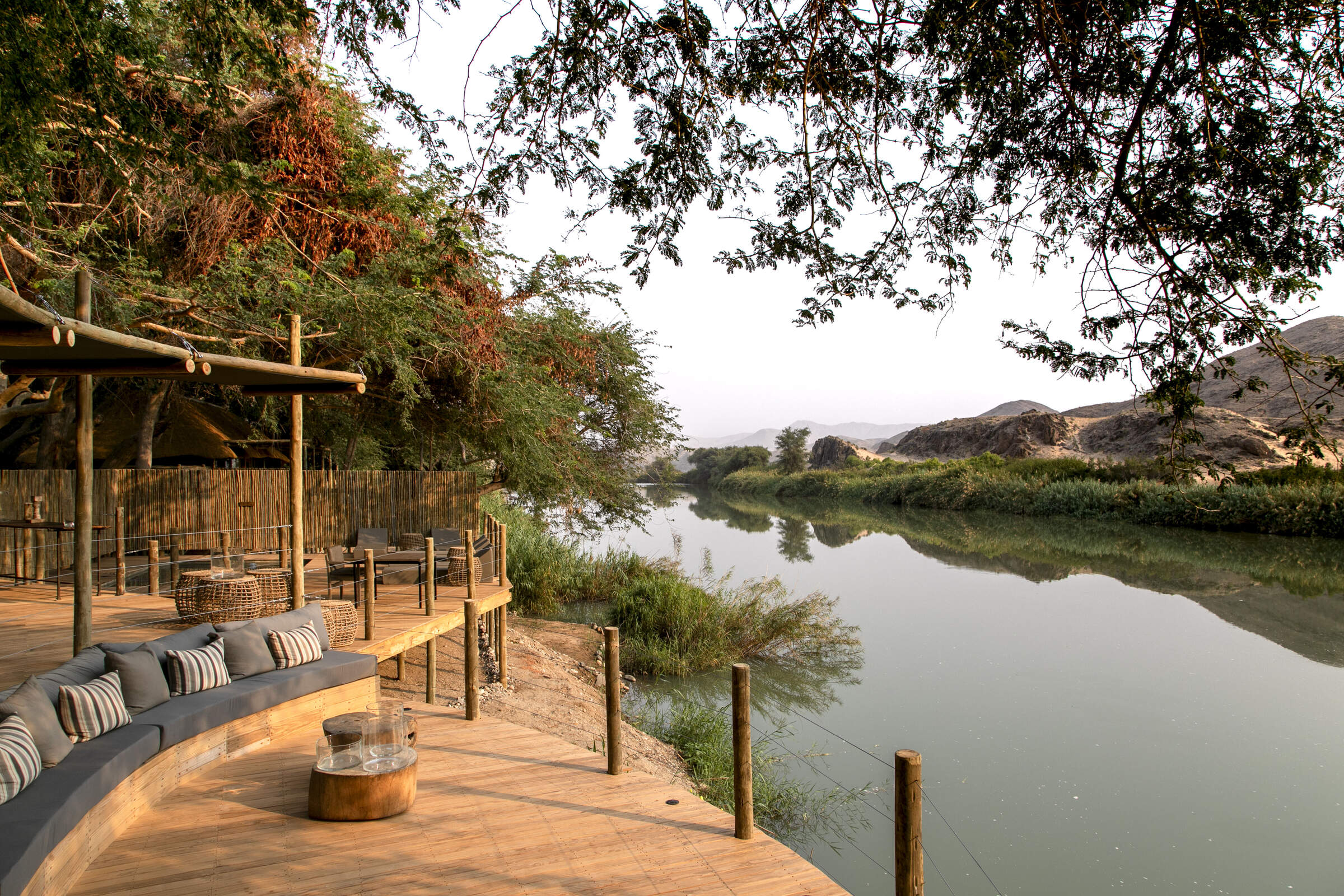
Serra Cafema
The luxurious Serra Cafema is in the most remote corner of Namibia - at the north end of Hartmann's Valley, across the Kunene River from Angola.
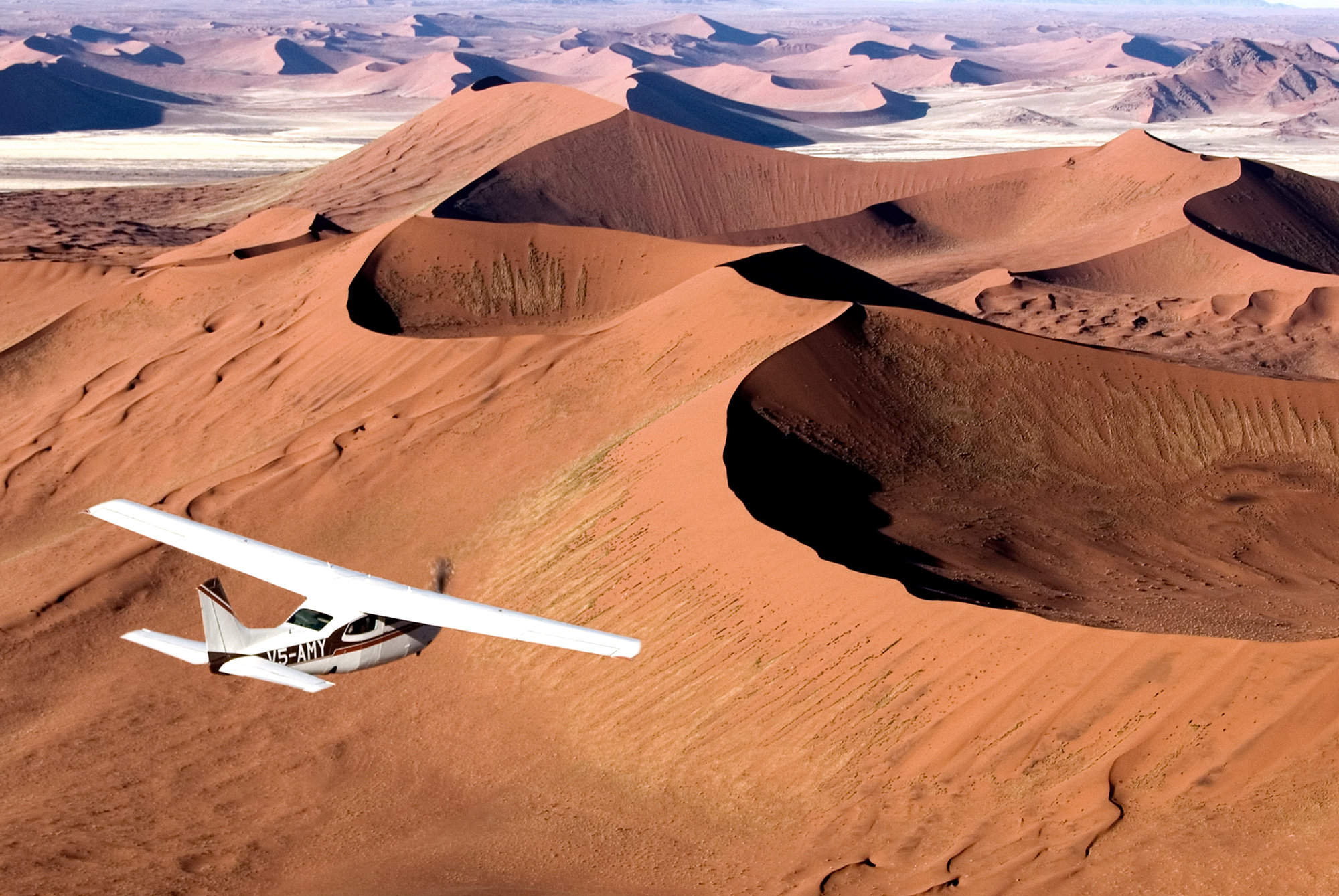
Skeleton Coast Safaris
Skeleton Coast Safaris is a small, family-run operation that has organised inspirational trips to this remote area of Namibia for nearly 50 years.
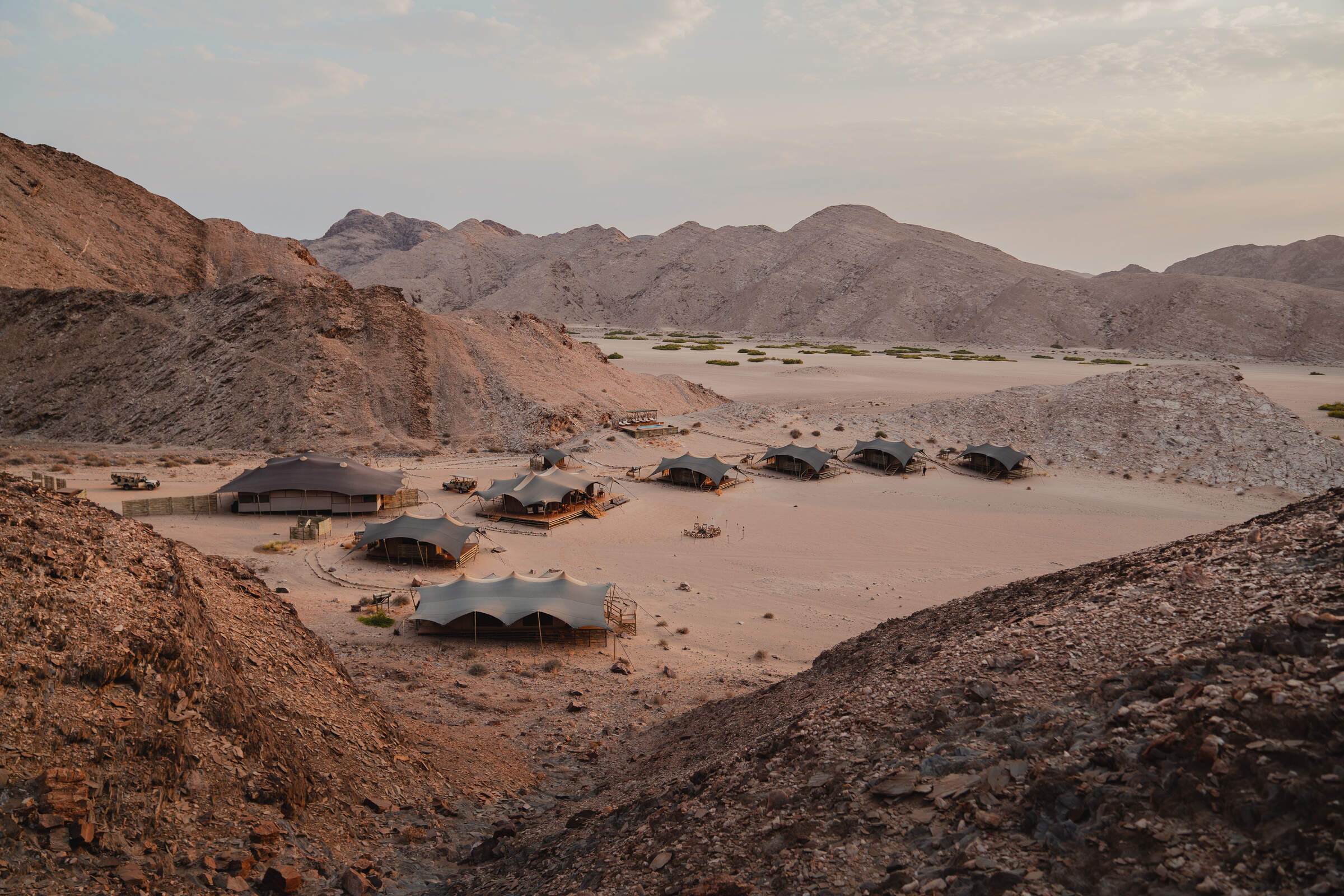
Hoanib Valley Camp
The intimate and remote Hoanib Valley Camp offers a rare chance to explore this dramatic corner of Namibia and to search for its sparse desert-adapted wildlife.
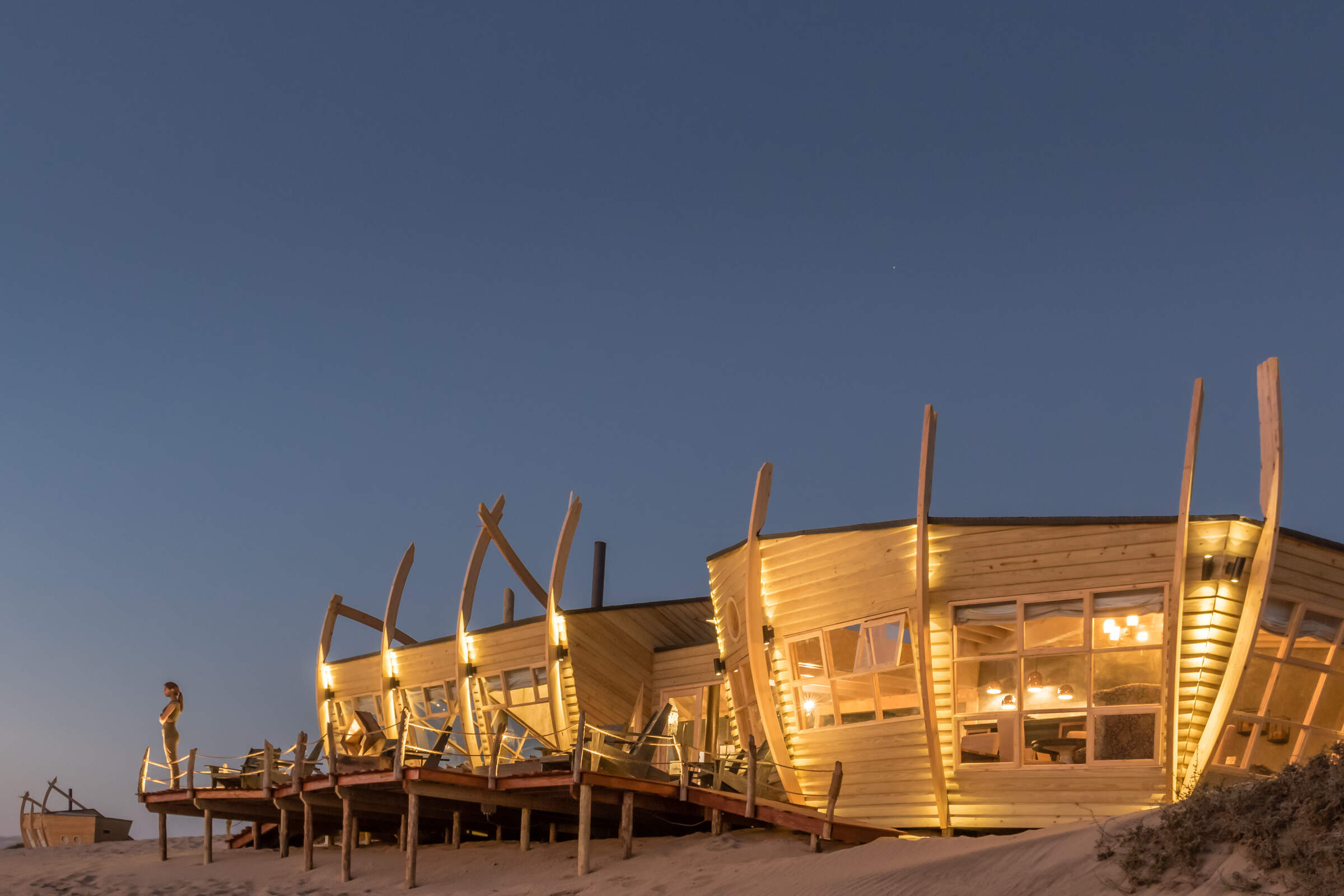
Shipwreck Lodge
The only property on this desolate stretch of coastline, the extraordinary Shipwreck Lodge opens up a new section of the Skeleton Coast National Park
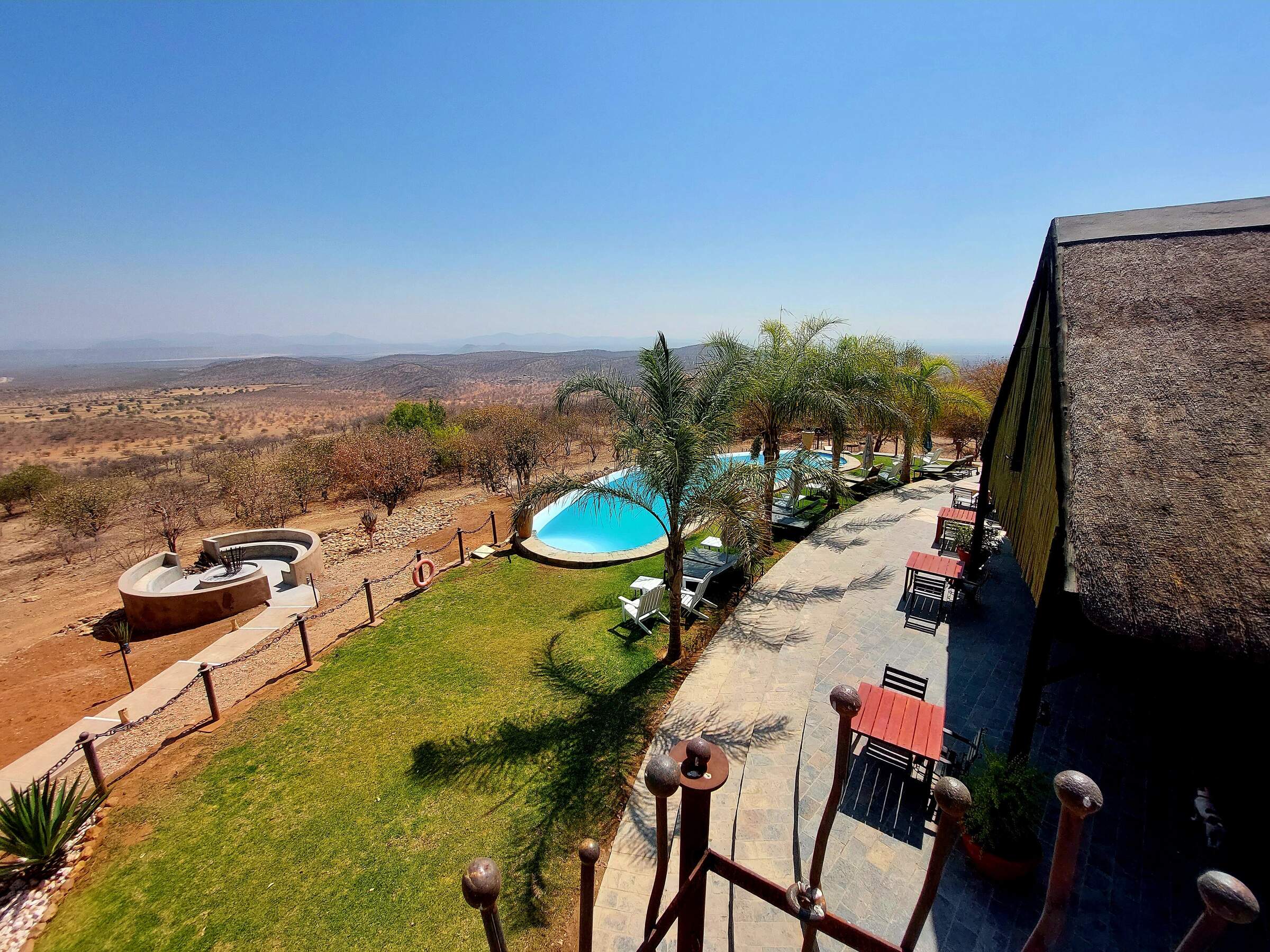
Opuwo Country Lodge
Opuwo Country Hotel provides comfortable accommodation is well situated for a night's stop before travelling into remote parts of Kaokoland.
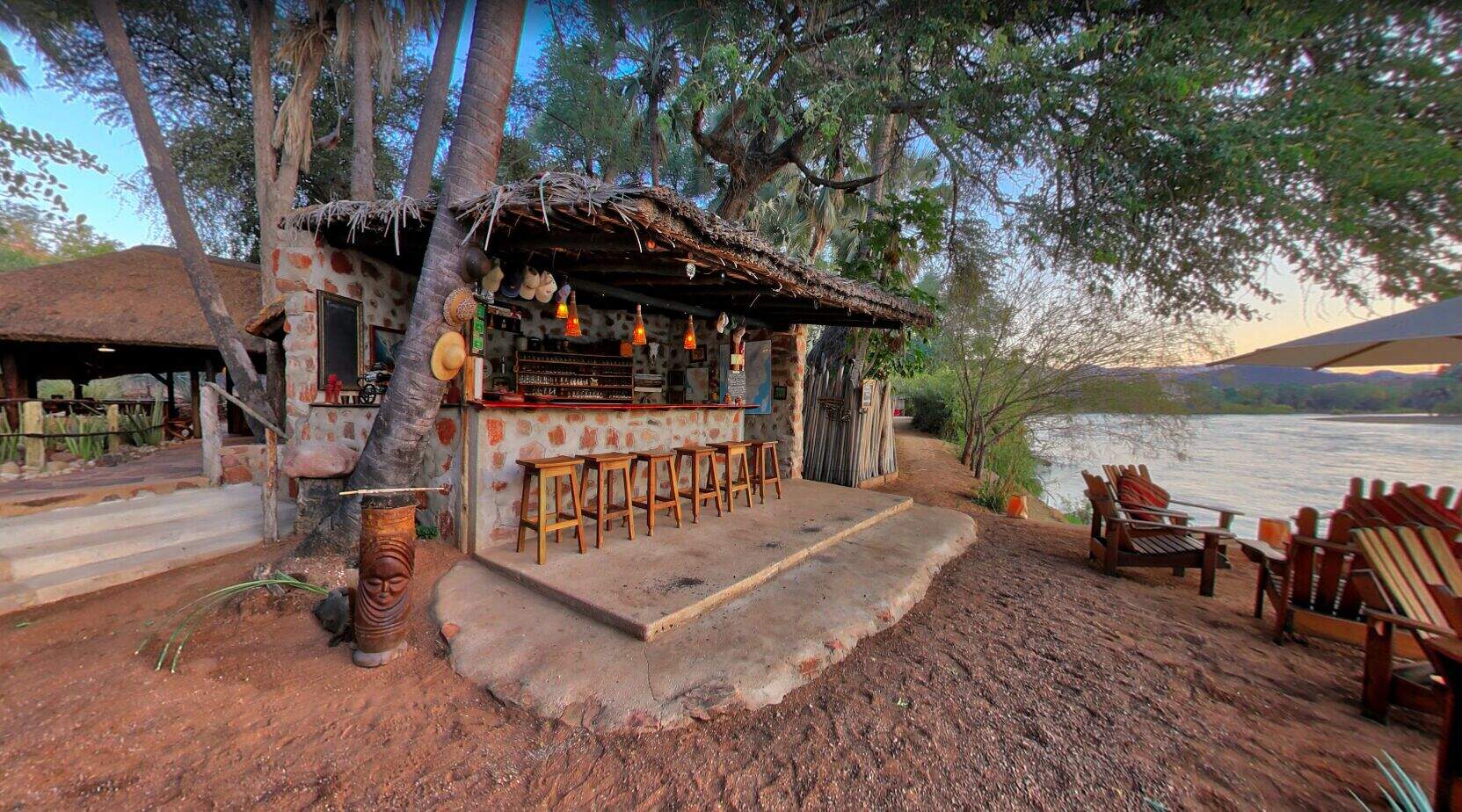
Epupa Camp
Epupa Camp is a welcoming oasis set on the palm-fringed banks of the Kunene River in north-west Namibia and close to Epupa Falls.
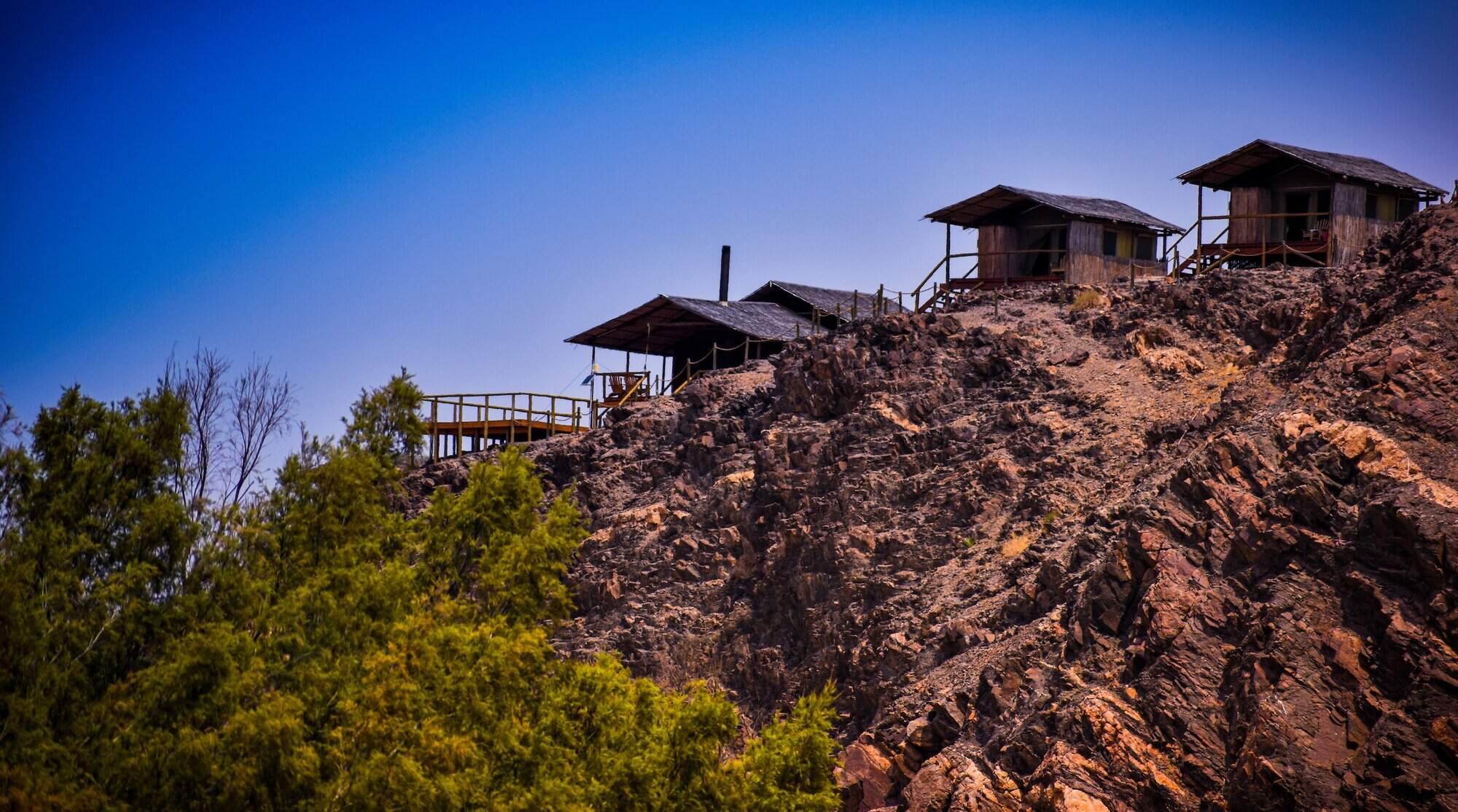
Leylandsdrift Camp
Used exclusively on the second night of a Skeleton Coast Safari, Leylandsdrift is in a beautiful location and is a good place to track desert-adapted elephants.
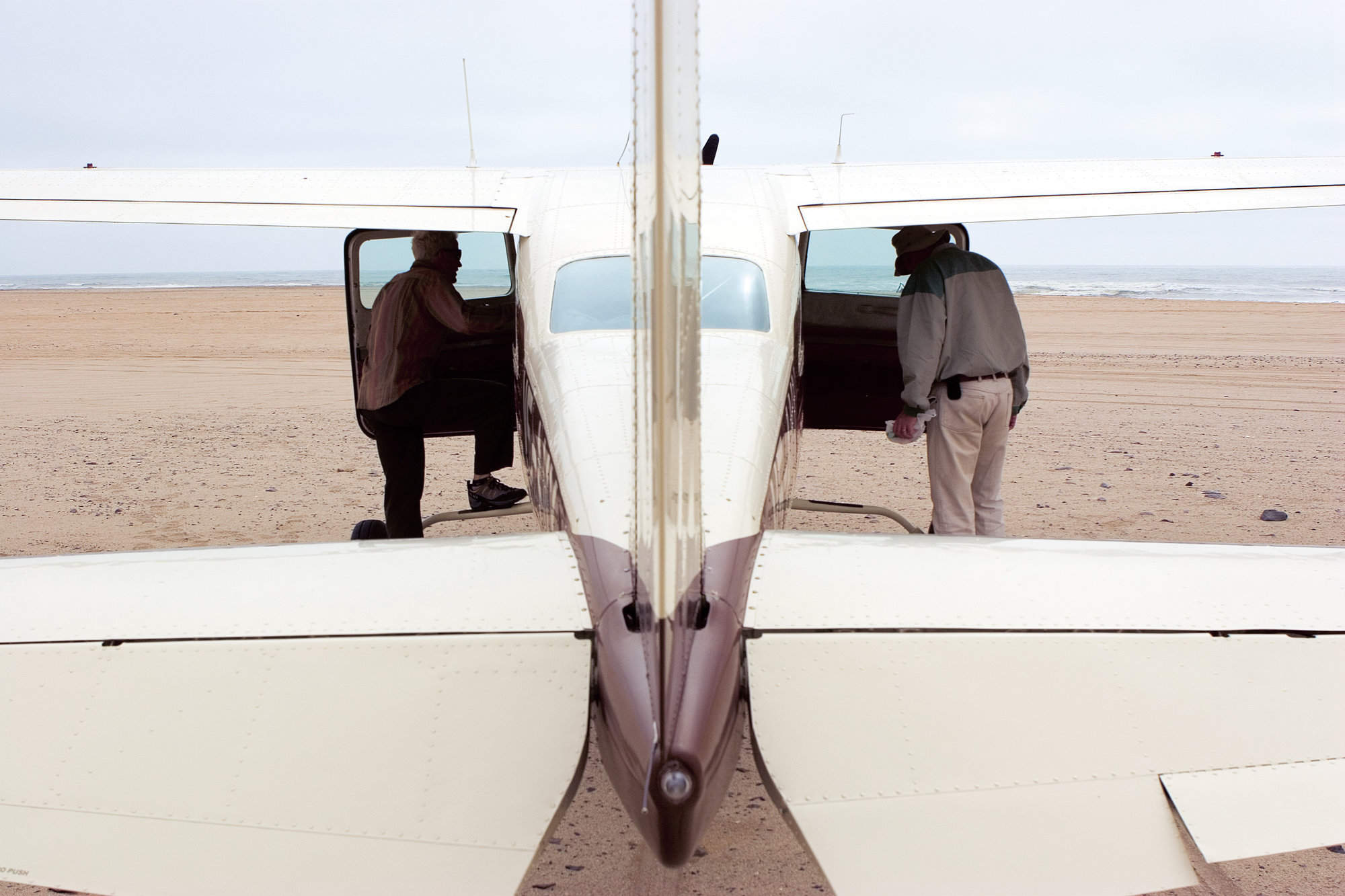
Kunene River Camp
Used exclusively on the final night of a Skeleton Coast Safari, the simple Kunene River Camp occupies a dramatic riverside location with some excellent birding.
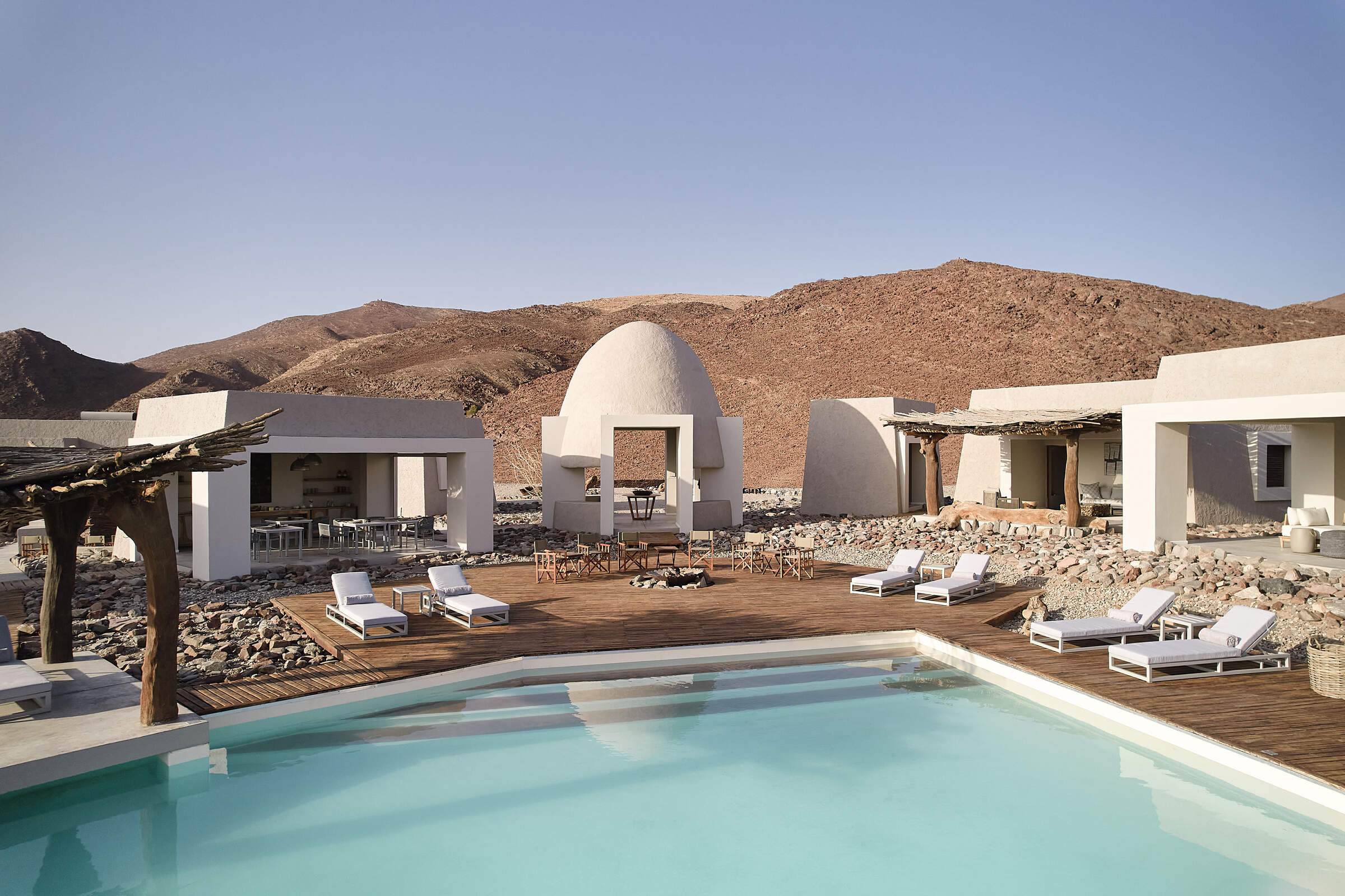
Okahirongo Elephant Lodge
Tucked away in Namibia's remote north-west, Okahirongo Elephant Lodge offers an unexpected level of luxury, with stunning views and plenty of activities.
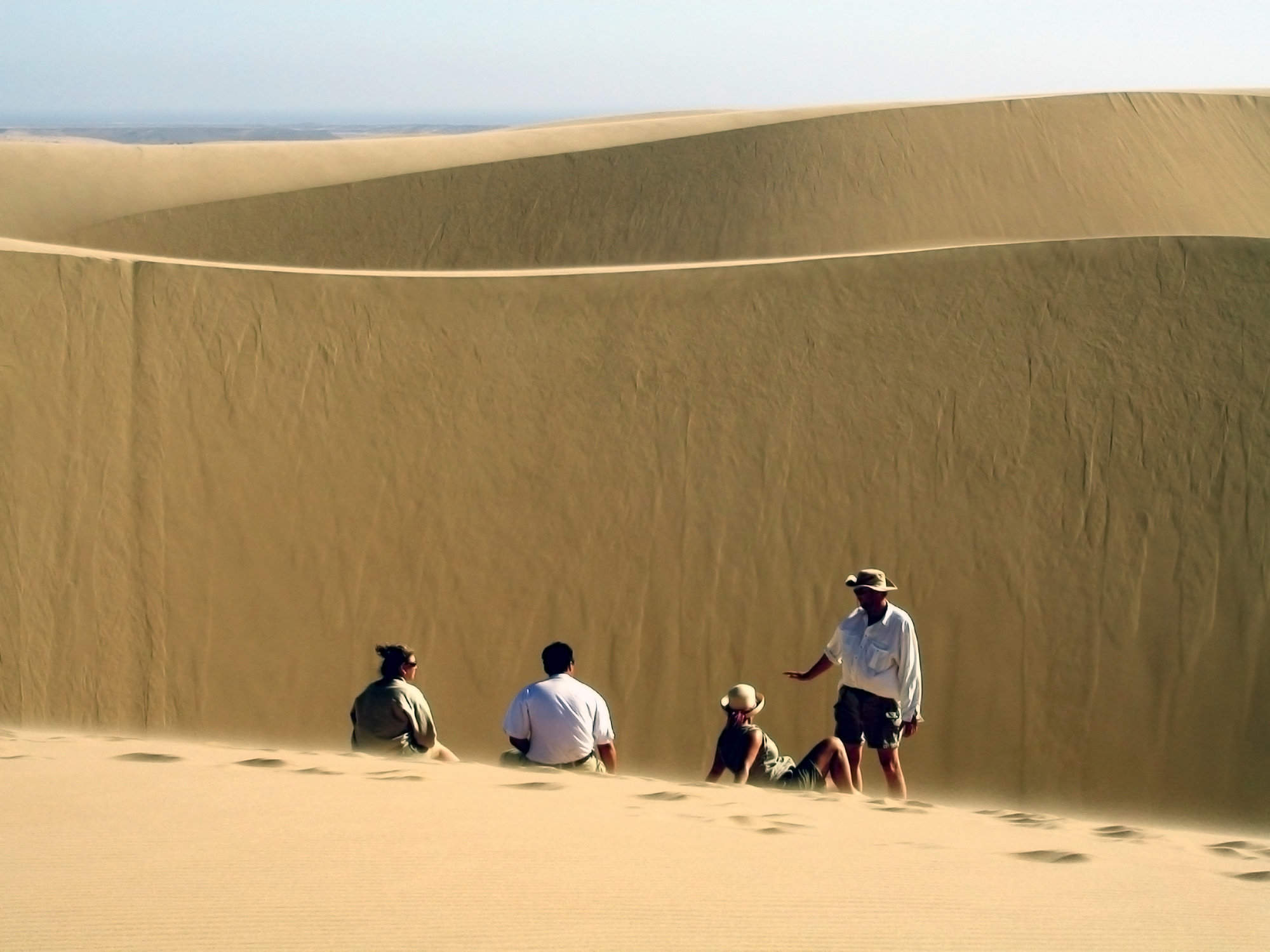
Kuidas Camp
Usually the first-night stop on a Schoeman Skeleton Coast safari, Kuidas is a very simple camp with stunning views of the Huab River valley.
Our travellers’ wildlife sightings in Skeleton Coast
This is their success for sightings in Skeleton Coast & Kaokoland. Click on a species for more detail. How we work this out.

79% success

73% success

55% success

54% success

36% success

23% success

10% success

6% success

4% success

3% success

0% success

0% success
When to go to Skeleton Coast & Kaokoland
The Skeleton Coast experiences distinct seasonal changes. Summer (November to April) brings occasional inland rains, transforming the desert, while coastal areas stay cooler due to fog and sea breezes. Winter (May to October) features dry, clear days and cold nights, ideal for wildlife viewing and star gazing.
The Cape Cross Seal Colony is active year-round, peaking in November-December. Whale watching is best from July to September.
Click each month below for a detailed monthly travel guide.
Jan
Feb
Mar
Apr
May
Jun
Jul
Aug
Sep
Oct
Nov
Dec
Skeleton Coast & Kaokoland in January
The Skeleton Coast experiences its rainy season in January, though precipitation remains sparse in this desert environment. The Ugab River and other ephemeral rivers may briefly come to life, creating a spectacle in the usually arid landscape. Despite the rain, temperatures can still reach around 30°C/86°F.
The greening landscape makes a refreshing change, especially in desert dune seas. Migrant species arrive in force, making it an excellent time for birdwatching along the coast and in areas like the Swakop River. In the northern part of the Skeleton Coast National Park, where rains are more reliable, desert animals look healthy, with shiny coats, due to the abundance of food.
- Variable weather with fog common along coast
- Cape fur seal pups growing rapidly at colonies
- Wildlife looking well fed, with shiny coats
- Few tourists, low rates at lodges and camps
- Occasional thunderstorms inland from the coast
Our view
This is not a great time to visit
Weather in January
Skeleton Coast & Kaokoland in February
February is typically the wettest month on the Skeleton Coast, though rainfall remains patchy. The central highlands near the park's eastern border and the Kunene River region can see heavier rain. Some February days are clear and hot, while others are cooler with building clouds, sometimes culminating in short, spectacular thunderstorms. These storms can generate flash floods in the park's ephemeral rivers, bringing them dramatically to life.
The landscape feels green and alive, with insects and smaller animals more easily seen. Many birds and animals in the Skeleton Coast National Park are raising their young during this time. However, the formation of small pools in the bush and thicker vegetation can make it challenging to spot larger wildlife as they disperse with easy to access water, especially in the northern sections of the park.
- Coastal fog persists, creating eerie atmosphere
- Seal colonies bustling with activity
- Desert-adapted wildlife more dispersed
- Low tourist numbers, great deals available
- Possible inland thunderstorms, coast stays dry
Our view
This is not a great time to visit
Weather in February
Skeleton Coast & Kaokoland in March
March usually sees the Skeleton Coast's main rains tailing off, though precipitation varies across the park. Many days are clear with strong sun, while others may end with short, spectacular thunderstorms, particularly in the inland areas. These storms reduce in frequency as the month progresses.
The landscape often appears vivid and green, especially around the Ugab and Hoanib rivers. Many birds and animals are finishing raising their young, so smaller animals and insects are in evidence. In the northern part of the Skeleton Coast National Park, where rains are generally heavier, pools in the bush and thicker vegetation can make it difficult to spot larger animals. However, this is an excellent time to observe desert-adapted wildlife thriving in the temporarily lush environment.
- Weather becoming more stable along coast
- Seal pups learning to swim at Cape Cross
- Animals well-fed after inland rainy season
- Wildlife harder to spot in expansive desert
- Few tourists, ideal for solitude seekers
Our view
A good time to visit, with pros & cons
Weather in March
Skeleton Coast & Kaokoland in April
April typically brings dry weather to the Skeleton Coast, with an ever-decreasing chance of rain. Temperatures fall below their summer peak but remain pleasant and warm during the day. Nights might have a slight chill, especially in desert areas. The rains usually leave many parts of the park verdant and green, so animals are in fantastic condition, often with fast-growing young in attendance.
With less dust in the atmosphere, photographers can capture clear shots of spectacular landscapes and healthy animals. Stargazing becomes increasingly rewarding as the month progresses. In the northern sections of the Skeleton Coast National Park, water and food remain in plentiful supply, so finding big game can be trickier than later in the year. However, this is an excellent time for observing a wide variety of wildlife.
- Cooler nights, pleasant daytime temperatures
- Migrant birds begin departing the coast
- Desert flora starting to dry out inland
- Easter brings slight increase in visitors
- Clear conditions for sharp photographs
Our view
A good time to visit, with pros & cons
Weather in April
Skeleton Coast & Kaokoland in May
By May, the Skeleton Coast is usually drying out fast. If the rains have been good, the land remains green, but wildlife starts to congregate at more permanent water sources like the Hoanib and Uniab rivers. Typical days are warm with crisp, clear mornings and blue skies. Evenings are usually cool, with temperatures potentially dipping below 10°C/50°F overnight, especially in desert areas.
The air quality and clarity can be amazing, making this an ideal month for photography of the park's dramatic landscapes. Many lodges still charge low season prices, although some have started to introduce higher shoulder season rates. May's good-value rates, increasingly good wildlife sightings, beautiful landscapes, and crystal-clear air combine to make this one of the best months to visit the Skeleton Coast.
- Mild days, cool nights ideal for exploration
- Excellent clarity for coastal photography
- Wildlife starting to congregate near water
- Lodges still offer good rates
- Great sea kayaking as seal pups take to water
Our view
A very good time to visit
Weather in May
Skeleton Coast & Kaokoland in June
June brings dry conditions to the Skeleton Coast. Skies are blue and usually largely cloudless. Days are lovely, warm, and dry; nights are cold, sometimes below freezing in desert areas. Most swimming pools at lodges are outdoors and too cold for all except the very dedicated. Warm clothing is essential for early morning and late evening nature drives.
In the northern part of the Skeleton Coast National Park, wildlife viewing enters its dry-season pattern, focusing around water sources. Photographers come to the area for the superb air clarity, with minimal dust or smoke. The Cape Cross Seal Colony becomes increasingly active as the young seals join parents on fishing trips. Historically, June rates have been low, but with increasing popularity, many lodges now count it amongst their high-season months.
- Clear, bright days with cold nights
- Prime time for scenic flights over coastline
- Wildlife gravitating to scarce water sources
- Most lodges move to high season rates
- Fishing season kicks off with great catch opportunities
Our view
A very good time to visit
Weather in June
Skeleton Coast & Kaokoland in July
July brings usually warm daytime temperatures upwards of 20°C/68°F to the Skeleton Coast, along with good sightings of desert-adapted wildlife such as elephants, giraffe, oryx, jackals and perhaps even lion. Watching elephants climb hillside dunes is often a highlight! Rain is very unusual, and clear skies make for great photographs of the stark desert landscapes.
Once the sun sets, temperatures cool rapidly, bringing cold nights that may dip below freezing in desert areas. Visitors should dress in layers and be prepared for cold early-morning and late-afternoon drives. Across the park, lodges charge high season rates; many are fully booked a year or more in advance, especially during European school holidays from the latter half of July to late August.
- Dry days, cold nights perfect for stargazing
- Whale watching season begins off the coast
- Excellent time to view desert wildlife
- Peak season rates at coastal accommodation options
- Cool temperatures for nature walks
Our view
A very good time to visit
Weather in July
Skeleton Coast & Kaokoland in August
August marks the height of winter on the Skeleton Coast. Expect cloudless skies and plenty of warm sun during the day, but nights can drop to freezing in desert areas. Visitors should dress in layers and bring warm clothes for chilly mornings and evenings. It's usually been 3-4 months since any significant rain, so the land is dry with only specialist desert plants standing out in their greenery. Many landscapes appear sparse and harsh, showcasing the raw beauty of the Skeleton Coast. Desert-adapted wildlife stays close to available water sources, helping to guarantee good animal sightings, particularly in the northern part of the park.
August is the most popular time to visit, especially for families. Advance booking is essential, often over a year in advance, for stays at the best lodges within the Skeleton Coast National Park.
- Clear skies, cold nights, warm days
- Marine mammals often seen on boat cruises
- Wildlife concentrated close to water points
- Busier season, advanced bookings recommended
- Ideal conditions for coastal adventure activities
Our view
Fantastic: the very best time to visit
Weather in August
Skeleton Coast & Kaokoland in September
September brings blue, cloudless skies and fantastic desert-adapted wildlife viewing to the Skeleton Coast. Rain is almost unheard of during this month. As September progresses, both days and nights get warmer. In some areas, daily maximums can reach the low 30s Celsius / mid 80s Fahrenheit, although low humidity ensures this feels comfortable.
The air becomes dustier, occasionally augmented by smoke from distant fires, creating a hazy atmosphere that can challenge photographers - though atmospheric sunsets are a delight. In the Skeleton Coast National Park, animals stay close to remaining water sources, making September one of the best months for viewing desert animals such as elephants, oryx and even lion. Consequently, September is one of the Skeleton Coast's most popular months for visitors. Seeing how remote communities exist in this barren setting is often a highlight.
- Quickly warming temperatures, still clear skies
- Fascinating insights to Himba communities
- Fantastic desert wildlife viewing in river valleys
- High season rates, lodges often fully booked
- Occasionally dusty skies create spectacular sunsets
Our view
Fantastic: the very best time to visit
Weather in September
Skeleton Coast & Kaokoland in October
October is usually the hottest and driest month on the Skeleton Coast. Temperatures build as the month progresses; towards the end, daily highs may exceed 40°C/104°F, though the low humidity makes even this heat bearable. In exceptional years, isolated rain showers may fall in late October. More usually, the end of the dry season sees wildlife watching at its best, particularly in the northern part of the Skeleton Coast National Park. Sightings of unusual species such as brown hyena and desert lion become more regular as the animals have limited water sources.
October is popular among landscape and unique wildlife enthusiasts and commands peak-season prices, even if dust and smoke may make the air hazy, challenging photographers. Visitor numbers can fade towards the end of the month, allowing a window for last-minute bookings at some lodges.
- Hot, dry conditions prevail along coast
- Marine wildlife abundant in coastal waters
- Exceptional desert game viewing in Hoanib area
- Still peak visitor time, book accommodations early
- Dining under stars on balmy nights in the desert is special
Our view
A very good time to visit
Weather in October
Skeleton Coast & Kaokoland in November
November is unpredictable on the Skeleton Coast; sometimes dry and hot, sometimes cloudier and cooler. Typically, mornings are hot and cloudless, with clouds appearing in the afternoon. Humidity builds and eventually breaks, resulting in spectacular thunderstorms that bring convection rainfall in late afternoons. Such storms are typically sparsely distributed and highly localised, being completely absent from the most arid desert areas. Places that do get good rain, like the Hoanib and Uniab river valleys, flush green with a tangible feeling of new life, softening the harsh landscapes.
Many mammals give birth to their young during this period. Once the rains come, wildlife disperses in search of food, and game viewing in the northern part of the Skeleton Coast National Park becomes more challenging. However, this is a great time for birdwatchers, with migrant species arriving in breeding plumage.
- Variable weather as summer approaches
- Cape fur seals begin breeding season
- Wildlife dispersing with first inland rains
- Shoulder season begins, rates become moderate
- Landscapes transforming with possible rain
Our view
A good time to visit, with pros & cons
Weather in November
Skeleton Coast & Kaokoland in December
December is often a drier period between the short and long rainy season. Clear mornings can give way to building clouds and spectacular evening thunderstorms, but often with little to no rain. These storms make for atmospheric skies and an interesting time for photographers. But even relatively short showers enable plant life to erupt, carpeting this thirsty land in green and providing food for the young animals as they grow. Animals disperse widely across the Skeleton Coast National Park, which can make game viewing more challenging than in the dry season. Many birds are breeding and sporting their most colourful plumage.
Christmas and New Year fall within local summer holidays, so accommodations can be surprisingly busy, especially in and around the park's coastal areas where temperatures are cooler.
- Warmer temperatures, chance of coastal fog
- Seal breeding season peaks at colonies
- Desert-adapted wildlife often have young
- Holiday period brings more visitors to coast
- Possible inland rains create lush landscapes
Our view
This is not a great time to visit
Weather in December
Skeleton Coast & Kaokoland: In detail
Skeleton Coast & Kaokoland
The remote north-west of Namibia, known as Kaokoland (or the Kunene Region), is home to dramatic scenery, small populations of game and the Himba people – and beside it lies the equally remote coastline of the famous Skeleton Coast.
This north-western corner of the country is very remote and often difficult to visit – but there are two ways to see it: you can drive yourself along the southern section of the Skeleton Coast, or you can take one of two excellent, but very different, fly-in safaris to the more remote north of the coast.
In addition, you can also visit the very north of the region, staying beside the lush Kunene River. This can be an interesting Kaokoland add-on to either of the fly-in safaris, or as a destination in its own right.
Driving along the Skeleton Coast
The first amazing sight you come across is an enormous breeding colony of Cape fur seals at Cape Cross. You can detour here en route to Damaraland, or stay for a night at the cosy Cape Cross Lodge. Further to the north, deep within the Skeleton Coast National Park, Terrace Bay is a simple government-run restcamp about six hours' drive north of Swakopmund. It's the only place to stay for a very long way!
Fly-in safaris to the Skeleton Coast
Both operations will take you to very remote areas, to the western escarpment and into the narrow coastal belt, and show you a spectacular region. Both can be integrated into longer fly-drive or fly-in trips. They're both amongst the best trips in Africa, but neither is cheap. So read on, then talk to us for a comparison, and we'll help to choose the right one for you.
Skeleton Coast Safaris
Each trip is usually escorted by one of the Schoeman family, who acts as pilot, driver and expert guide. You spend every night in a different area, sleeping in dome tents at tiny permanent camps – Kuidas Camp and beside the dry Huab River; Purros Camp near a spring in the Hoarusib River; and Kunene River Camp, on the lush banks of the Kunene River.
The Schoemans are amongst the best guides in the country, and will open your eyes to this unique wilderness. These trips are hugely informative, giving unparalleled insight into the area and we cannot recommend them too highly.
You can find further details of the itinerary by looking at Expert Africa's Skeleton Coast safari trip, and also by checking out the three camps used on this safari.
Fly-in safari to the Skeleton Coast Camp
During your three- or four-night stay at the camp (departing Windhoek every Wednesday or Saturday respectively) you explore various stark and beautiful areas within the reserve area and just outside it, with your professional guide. These may include trips over the vast dune belts to the coast or travelling inland to visit a Himba settlement. You may also get the opportunity to see lichen fields, desert-adapted elephants and visit a cape fur seal colony and ancient stone circles. With so much to see and do in this fascinating area you will not get bored – most people choose to take fully day trips from the camp having a delicious picnic en route.
Kaokoland add-on
Map of Skeleton Coast & Kaokoland
Choices for where to stay in Skeleton Coast & Kaokoland
Skeleton Coast & Kaokoland: Safaris

Ruppell's Korhaan Fly-in Safari
9 days • 4 locations
WINDHOEK AIRPORT TO WINDHOEK AIRPORT
Explore Namibia’s remotest wildernesses while staying at some of the most exclusive luxury camps in the country. This epic fly-in safari will deliver otherworldly landscapes, fascinating wildlife and genuine cultural experiences.
US$11,400 - US$16,900 per person

Goshawk Fly-in Safari
12 days • 6 locations
WINDHOEK AIRPORT TO WINDHOEK AIRPORT
Discover Namibia’s remarkable landscapes, fascinating wildlife and unique cultures on this luxury adventure flying between a selection of the very best camps and lodges in the country.
US$13,570 - US$20,340 per person

Monteiro's Hornbill Fly-in Safari
9 days • 5 locations
WINDHOEK AIRPORT TO WINDHOEK AIRPORT
Stay in four of Namibia’s most famous environments on this fly-in safari. It would be hard to pack more variety into a trip of the same length.
US$12,160 - US$14,700 per person

Skeleton Coast Safari
5 days • 5 locations
WINDHOEK AIRPORT TO WINDHOEK AIRPORT
An epic flying safari exploring some of Namibia’s most spectacular and remote wildernesses. Exceptional pilots, among the best guides in the country and exclusive camps – this a real bucket-list adventure.
US$10,990 - US$14,490 per person
13 of our best lodges and safari camps in Skeleton Coast & Kaokoland
There is plenty of choice in accommodation in this area. Ask us for more details of what's where, and what's likely to suit you best!

Cape Cross Lodge
Right on the Skeleton Coast, between Swakopmund and Damaraland, Cape Cross Lodge has easy access to Cape Cross Seal Reserve.

Hoanib Skeleton Camp
Hoanib Skeleton Coast Camp is actually situated 42km inland in Kaokoland, this said they offer a superb guided day trip to the coast.

Terrace Bay
Terrace Bay is bleak. However, those that stay here come to experience the remote and inhospitable nature of the Skeleton Coast.

Serra Cafema
The luxurious Serra Cafema is in the most remote corner of Namibia - at the north end of Hartmann's Valley, across the Kunene River from Angola.

Skeleton Coast Safaris
Skeleton Coast Safaris is a small, family-run operation that has organised inspirational trips to this remote area of Namibia for nearly 50 years.

Hoanib Valley Camp
The intimate and remote Hoanib Valley Camp offers a rare chance to explore this dramatic corner of Namibia and to search for its sparse desert-adapted wildlife.

Shipwreck Lodge
The only property on this desolate stretch of coastline, the extraordinary Shipwreck Lodge opens up a new section of the Skeleton Coast National Park

Opuwo Country Lodge
Opuwo Country Hotel provides comfortable accommodation is well situated for a night's stop before travelling into remote parts of Kaokoland.

Epupa Camp
Epupa Camp is a welcoming oasis set on the palm-fringed banks of the Kunene River in north-west Namibia and close to Epupa Falls.

Leylandsdrift Camp
Used exclusively on the second night of a Skeleton Coast Safari, Leylandsdrift is in a beautiful location and is a good place to track desert-adapted elephants.

Kunene River Camp
Used exclusively on the final night of a Skeleton Coast Safari, the simple Kunene River Camp occupies a dramatic riverside location with some excellent birding.

Okahirongo Elephant Lodge
Tucked away in Namibia's remote north-west, Okahirongo Elephant Lodge offers an unexpected level of luxury, with stunning views and plenty of activities.

Looking for inspiration on where to travel next?
Visit our trip chooser to explore your options and find inspiration for your perfect African adventure
Inspire me